-
Search -
Accessibility -
Members Login
Our work
We would particularly like to thank ICMC in Amman, International Rescue Committee (IRC) in Nairobi and Asia Pacific Refugee Rights Network (APRRN) in Bangkok for hosting the ICVA Regional Hubs. Their support to this initiative has been invaluable!
The ICVA’s Asia Hub, based in Bangkok, Thailand, was established in 2013 following consultations held in 2012 with national and international NGOs operating in the region. Since its opening, the Hub has engaged widely with members and partners in the region, through a range of projects, events, research, facilitations and missions that have fed into our global and regional portfolios.
The ICVA Asia Regional Hub works closely with members and NGO fora to:
This platform is for members to:
Topics addressed include: the Grand Bargain, Global Compact on Refugees, IASC Regional Network, and regional engagement with diverse humanitarian actors.
To join the group contact the ICVA Asia Regional Representative.
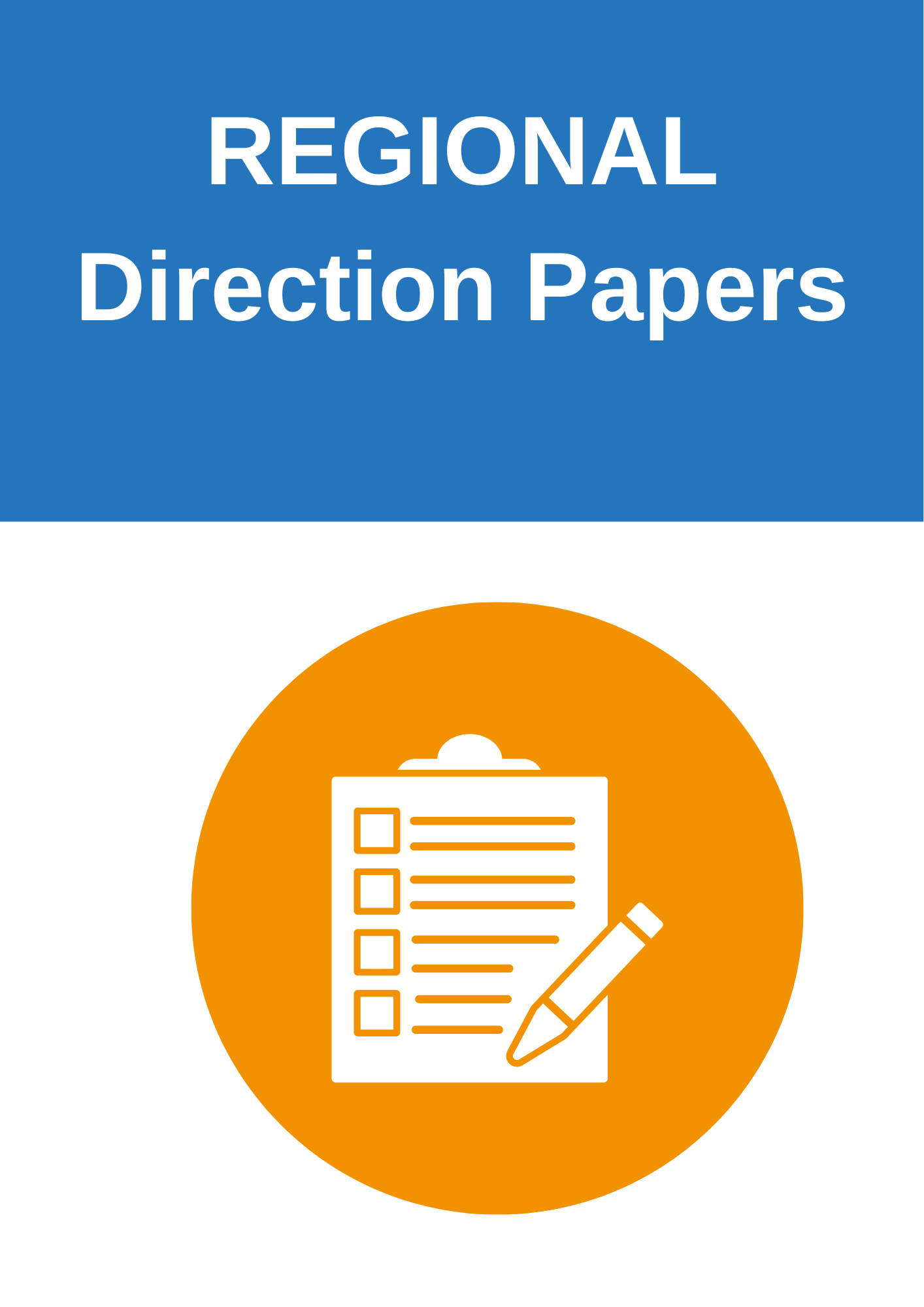
The 2022-2024 direction paper sets the focus of ICVA’s work in Asia and the Pacific Region and is guided by the ICVA 2030 Strategy.
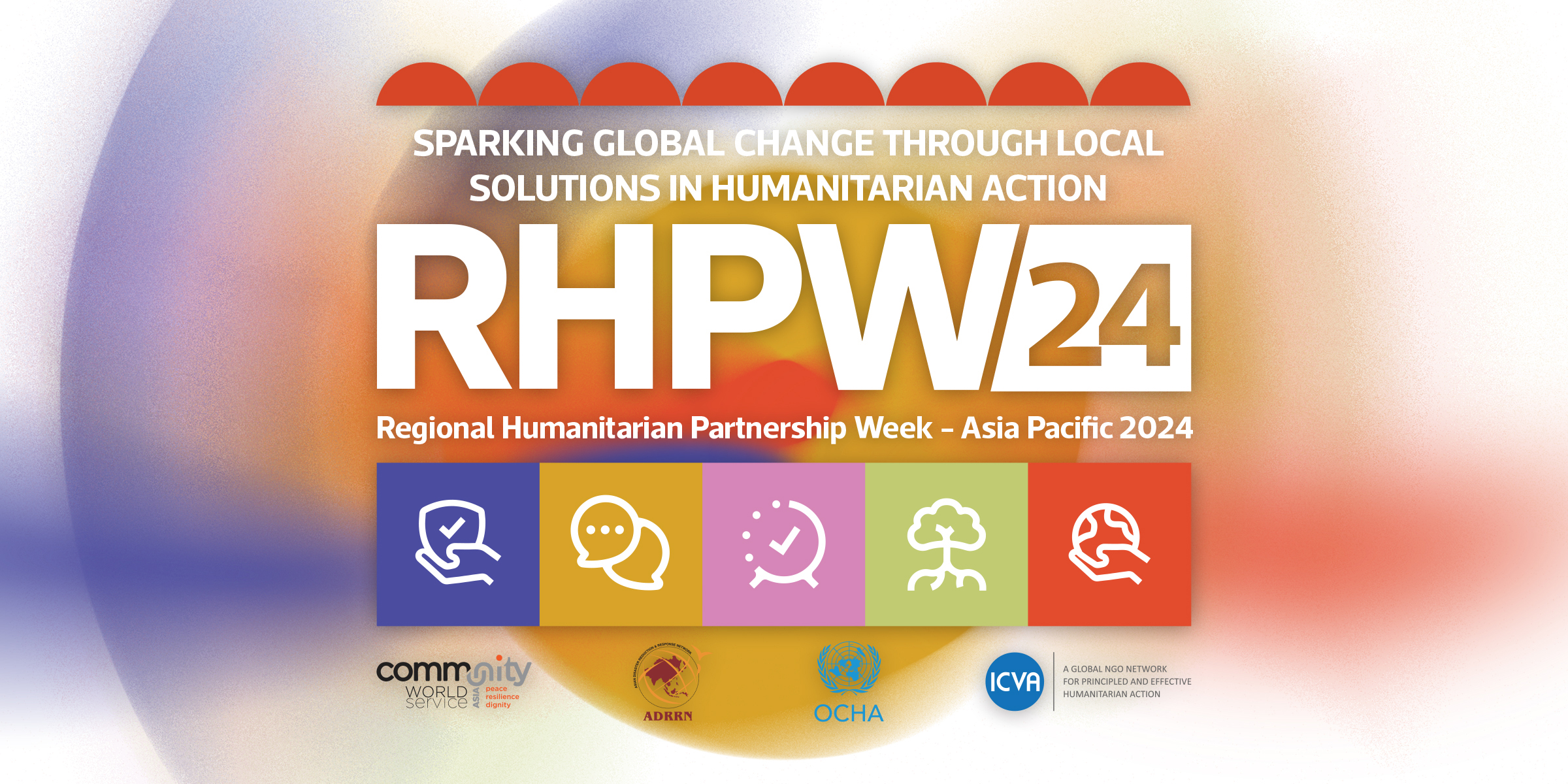
The Regional Humanitarian Partnership Week (RHPW) is a collaborative event organised by ICVA, ADRRN, CWSA, and UNOCHA, bringing together hundreds of humanitarian professionals from the Asia-Pacific region to share best practices and foster partnerships. The event will take place 10 – 12 December 2024 in Bangkok, Thailand.
Click on the below link to access the List of Participating Organisations.

Presentations from Sessions of the 2024 Regional Humanitarian Partnership Week, which took place on 10-12 December in Bangkok, Thailand.
Click on the links below to access the presentations.

The Regional Humanitarian Partnership Week (RHPW) is a collaborative event organised by ICVA, ADRRN, CWSA, and UNOCHA, bringing together hundreds of humanitarian professionals from the Asia-Pacific region to share best practices and foster partnerships. The event will take place 10 – 12 December 2024 in Bangkok, Thailand.
Click on the below link to access the programme.
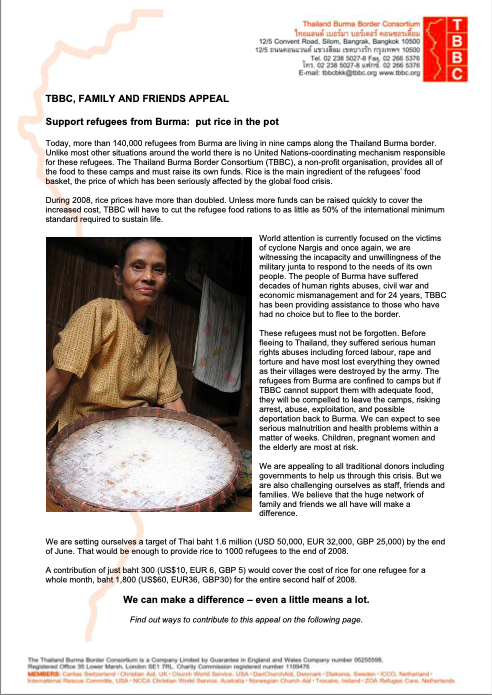
The Thailand Burma Border Consortium’s appeal to donors for funds to provide food for Burmese refugees living in camps along the Thailand Burma border.
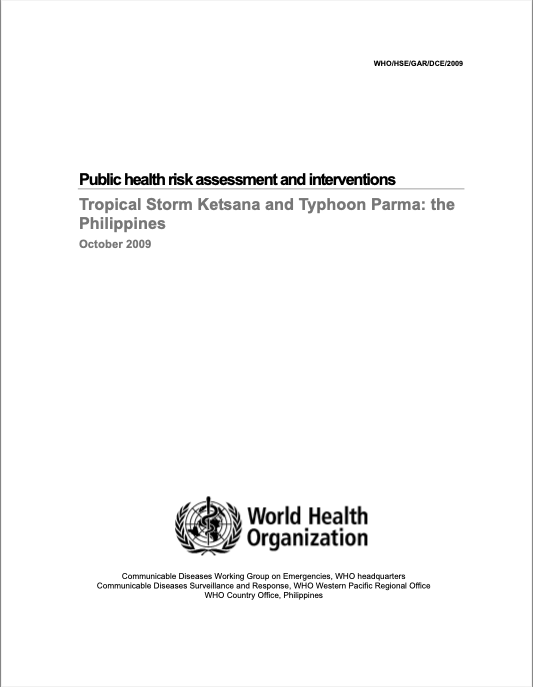
This 2009 World Health Organization public health risk assessment provided health professionals in United Nations agencies, nongovernmental organizations, donor agencies and local authorities currently working with populations affected by the emergency in the Philippines, with up-to-date technical guidance on the major public health threats faced by the flood-affected population.
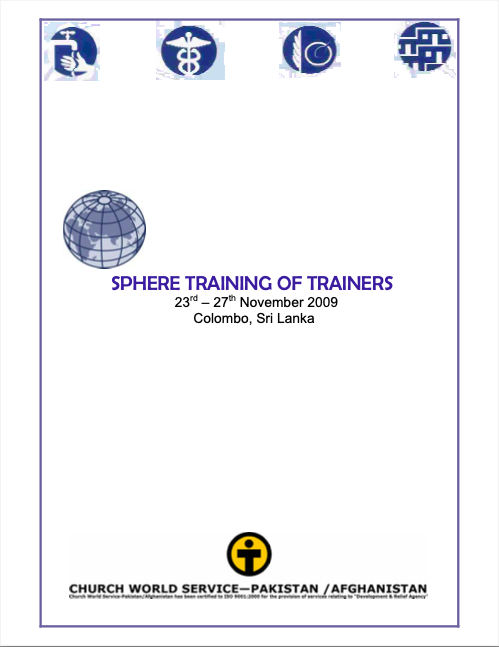
This brochure advertizes the forthcoming Sphere Training of Trainers course, offered by the Church World Service – Pakistan/Afghanistan. The aim of this workshop is to ensure that all relevant agencies are given the opportunity to build their awareness and practice in relation to Sphere Minimum Standards, so that their work is representative of recognized “best practice” in humanitarian work.

Presentation by Oliver Lacey-Hall at the ICVA regional elearning webinar on Understanding ASEAN: The role of the AHA centre on 12 October 2017.
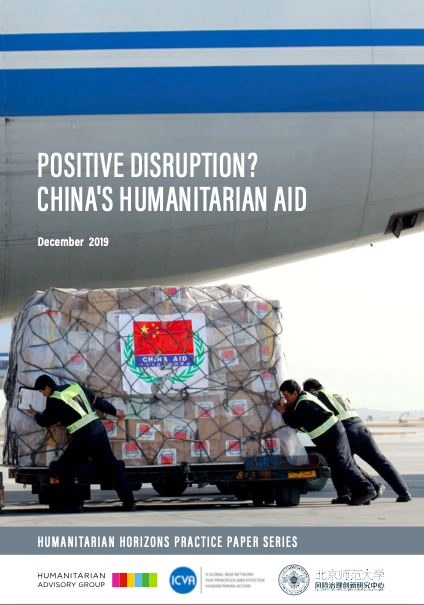
China’s global aid program is evolving and expanding prompting considerable interest from the international humanitarian sector. Much attention has been paid to developments in Chinese aid. Most work examines the geopolitical, development aid and security policy angles, rather than the operational and policy implications for humanitarian aid. There is less understanding of how Chinese and traditional actors can engage on humanitarian reform. This practice paper aims to address that gap, as part of the Humanitarian Horizons research program, which seeks to stimulate discussion and inform practice.
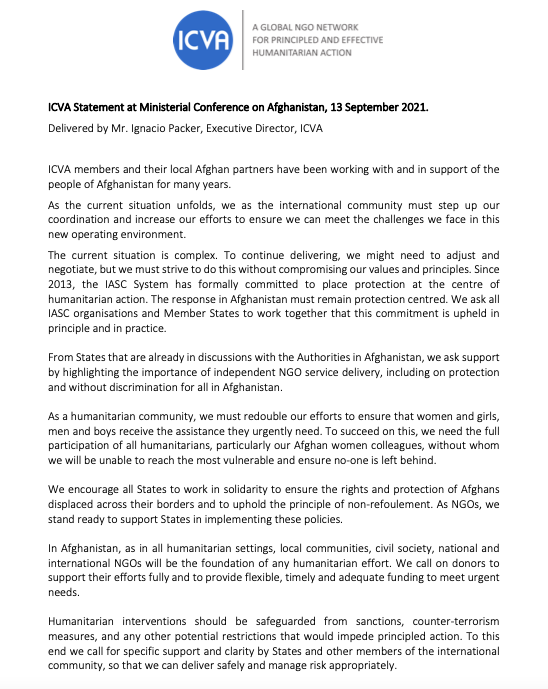
The Secretary-General of the United Nations, António Guterres, convened a high-level ministerial meeting on Monday September 13th 2021 to show solidarity with Afghanistan’s people and pledge tangible support. At this meeting our Executive Director, Ignacio Packer presented a statement.
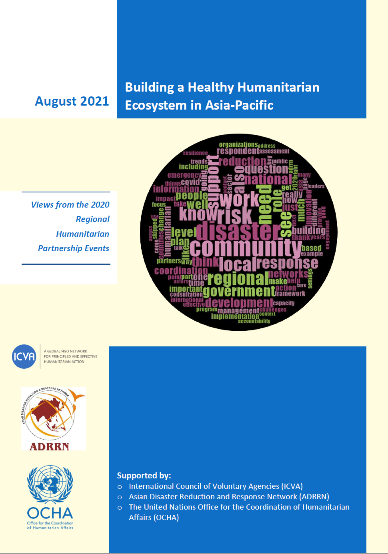
This policy paper seeks to amplify the views and experiences articulated during the 2020 Regional Humanitarian Partnership Events on what will the future of humanitarianism look like in the Asia-Pacific region over the next decade.
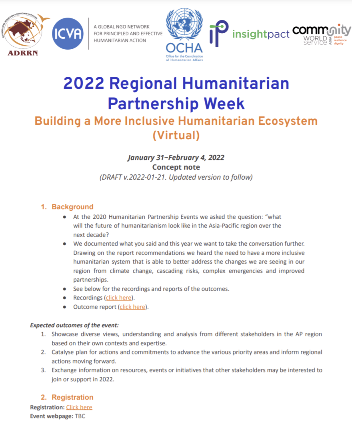
The 2022 Humanitarian Partnership week aimed to:
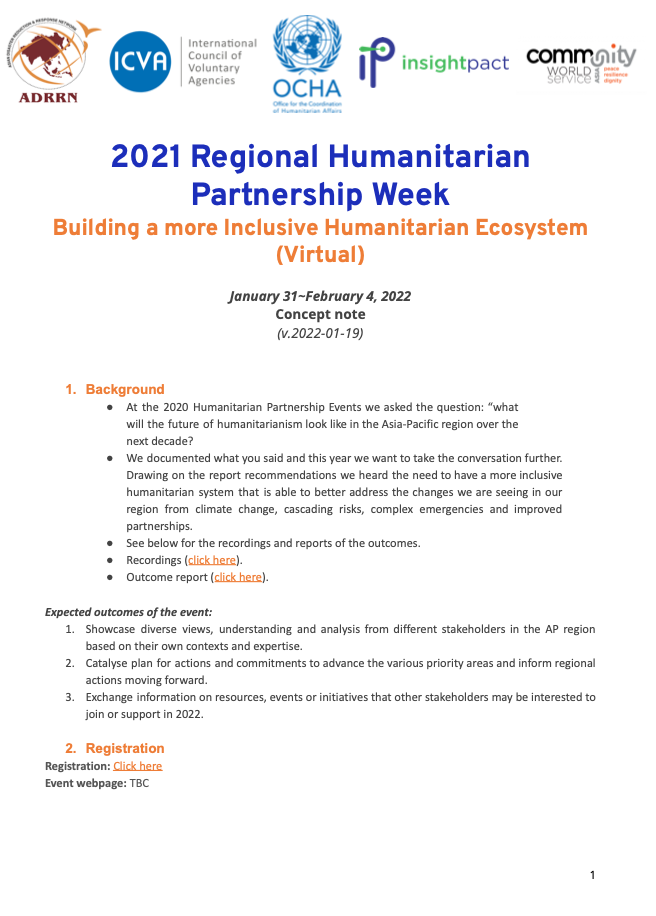
The 2022 Regional Humanitarian Partnership Week took place virtually from January 31~February 4, 2022, under the theme Building a more Inclusive Humanitarian Ecosystem
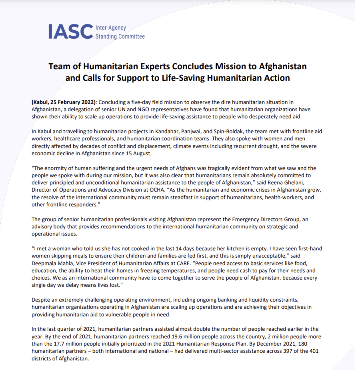
A press statement on IASC’s Emergency Directors Group’s five-day mission to Afghanistan while calling for urgent support to life-saving humanitarian action.
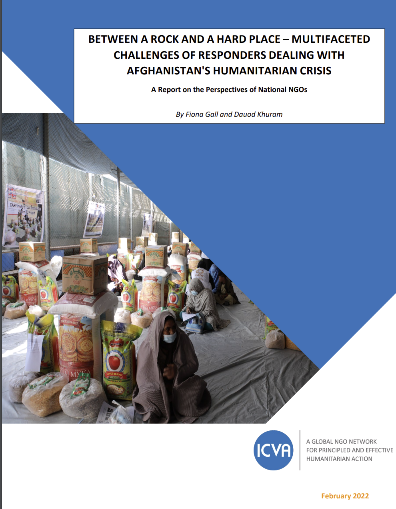
This briefing paper covers a historical analysis of NGO – Taliban relations. It highlights the challenges currently faced by the NGOs in Afghanistan, with a focus on national and local NGOs, based on findings from 41 key informant interviews and a desk review of currently available literature. It concludes with recommendations for the humanitarian sector as they move forward with meeting the needs of vulnerable Afghan people during this complex crisis.
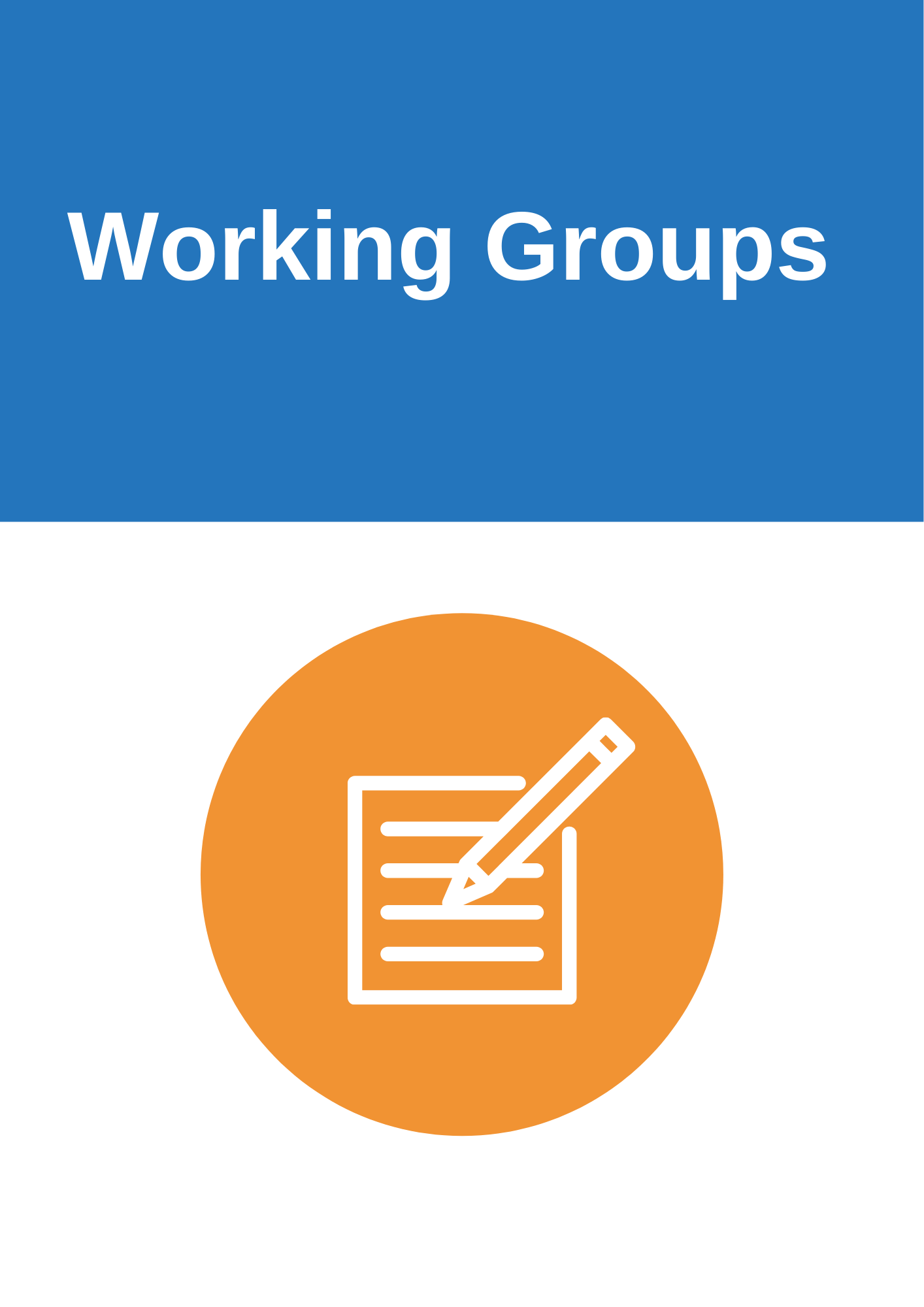
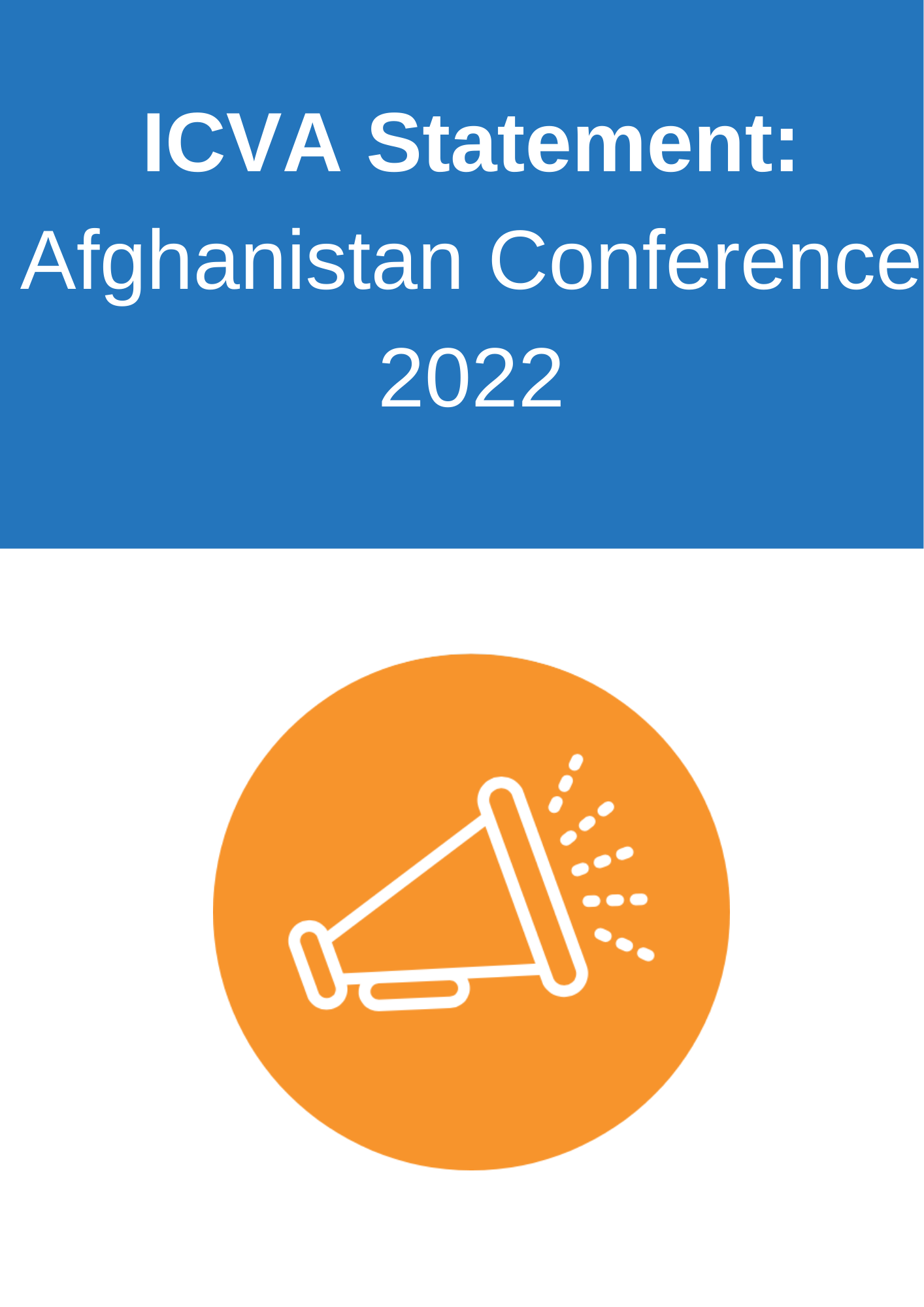
ICVA Statement during the Afghanistan Conference 2022. A High-level pledging event on supporting the Humanitarian Response in Afghanistan. The meeting was convened by UN Secretary-General António Guterres, joined by Member State co-hosts including the Governments of Qatar, the United Kingdom and Germany.

The 2022-2024 direction papers set the focus of ICVA’s work in Africa, Asia and the Pacific, Latin America, and MENA regions. They are guided by the ICVA 2030 Strategy.
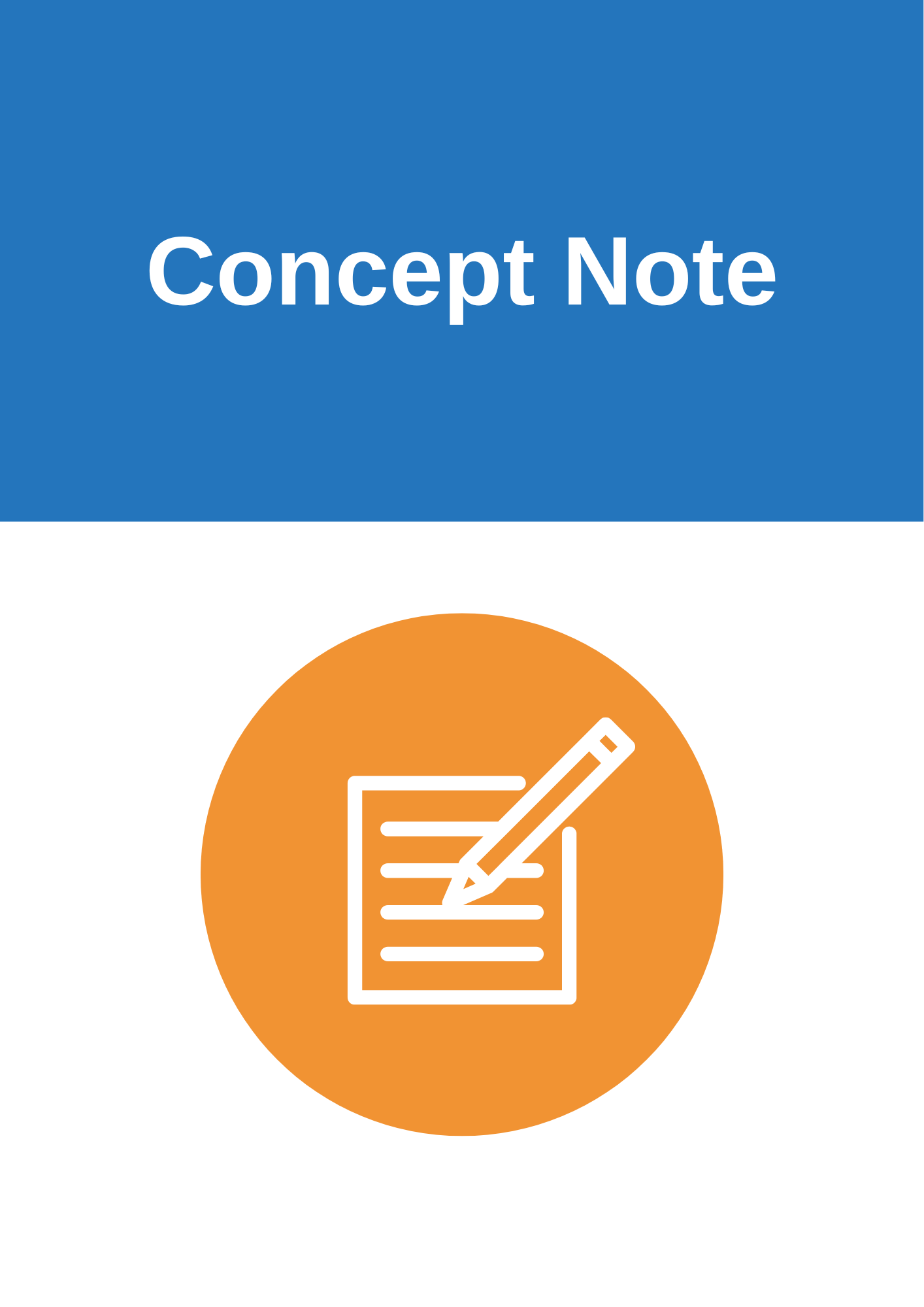
Concept note for the 2022 Asia Pacific Regional Humanitarian Partnership Week.
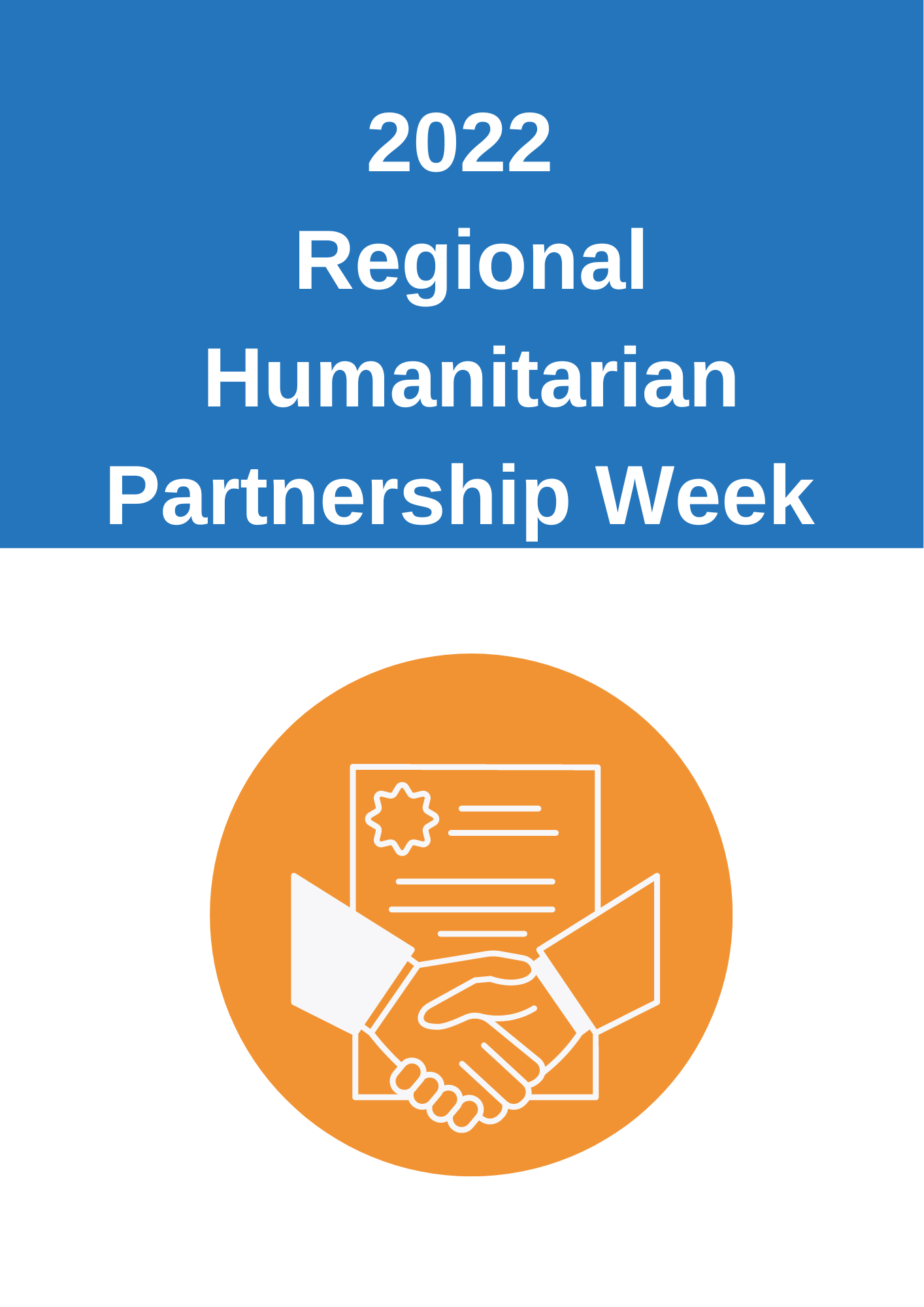
Schedule for the 2022 Regional Humanitarian Partnership Week on 9-14 December 2022 at Rembrandt Hotel and Suites, Sukhumvit soi 18, Bangkok Thailand.
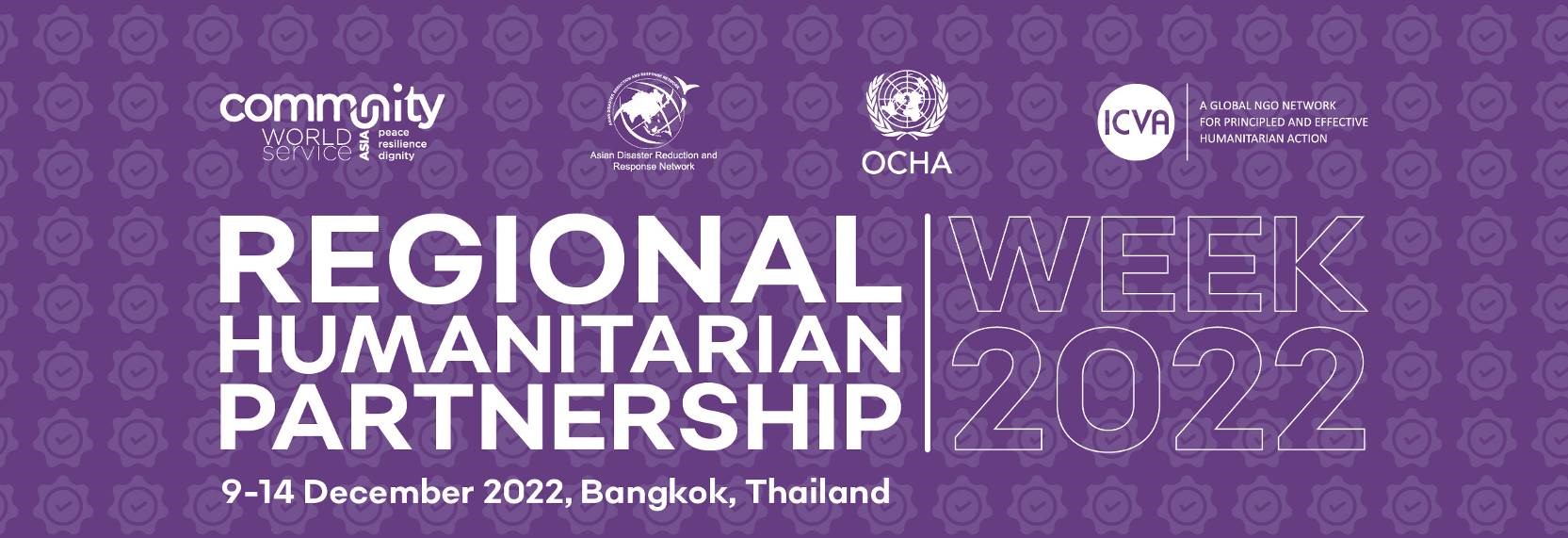
Programme for the 2022 Regional Humanitarian Partnership Week in Bangkok, Thailand.
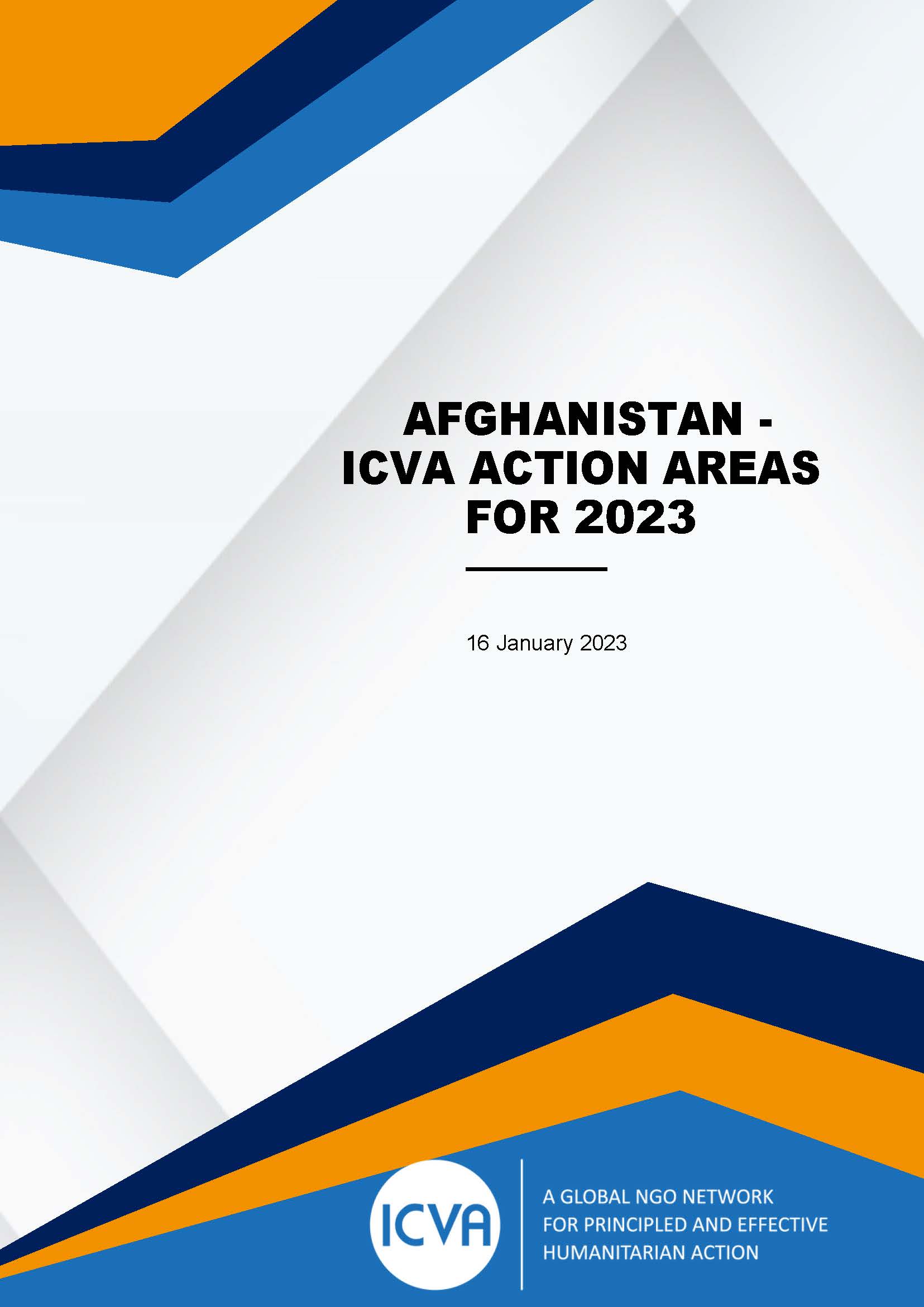
The directive from the De Facto Authority (DFA) Minister of Economy on 24 December, banning Afghan women from working in national and international Non-Governmental Organizations (NGOs) has had immediate impact on humanitarian operations, with many NGOs temporarily pausing activities in which women cannot participate. This document highlights ICVA’s approach to support in this unfolding crisis.
This Regional Learning Webinar was an opportunity to discuss and share with our members and NGO partners. It aimed to :

This webinar provides a stronger understanding of the role of regional humanitarian actors.
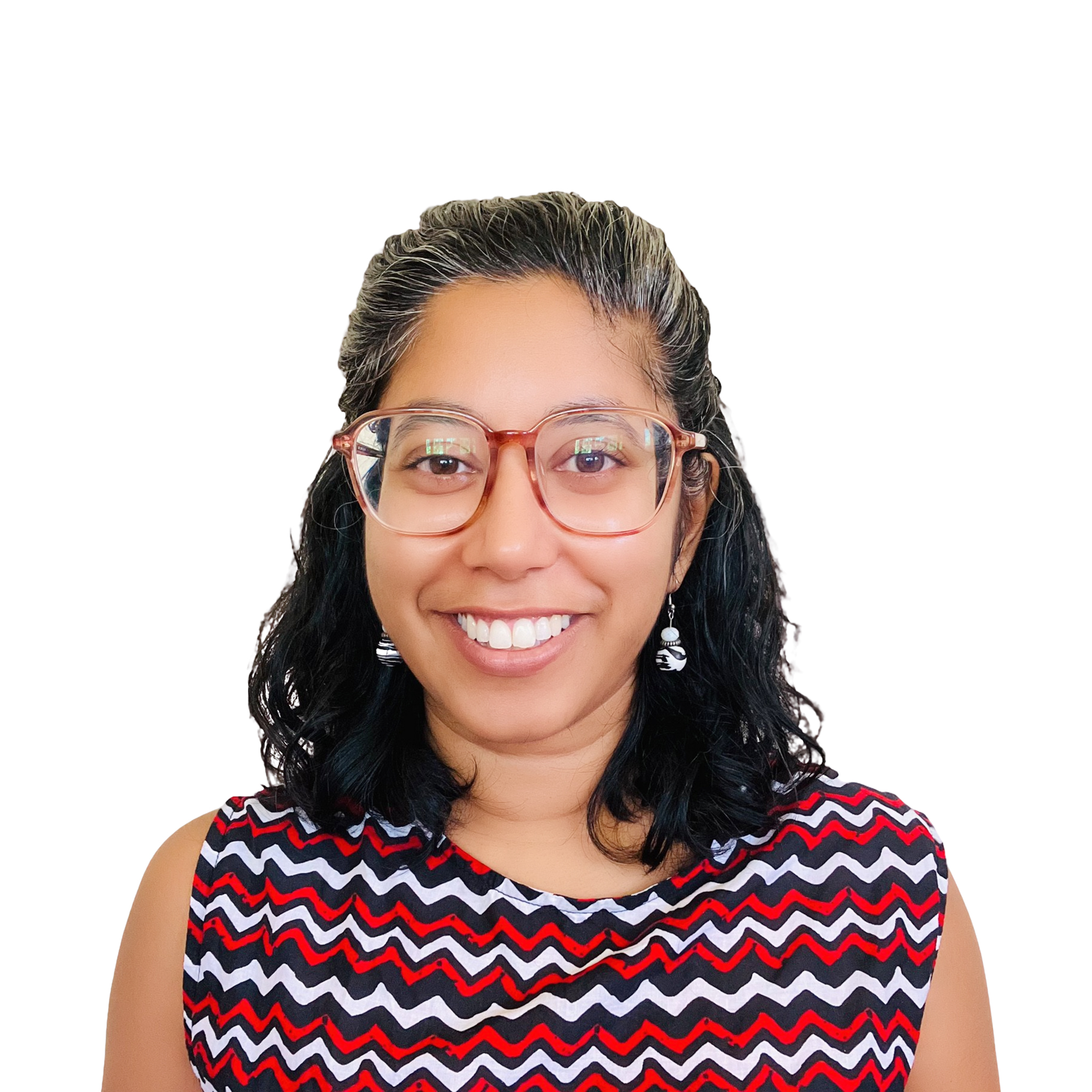
Keya joined ICVA in 2020 and hopes to translate her experiences working in gender and health across the development and humanitarian space into an asset for the work of ICVA in the region.
She has over 12 years of experience working with local and international NGOs in the Asia Pacific Region including the Red Cross and International Planned Parenthood Federation (IPPF). She has worked with a diverse country portfolio, including Myanmar, China, Indonesia, Afghanistan, Nepal, Philippines and PNG. Her work has focused on strengthening engagement of local NGOs in the humanitarian system, emergency preparedness and partnership development.

Asma has over 10 years of experience working with the government, NGOs, and private sectors on organizational development, partnerships, and community development. In her role as Deputy Regional Representative for the Asia Pacific, Asma provides support in setting the direction of ICVA’s work within the region and strengthening meaningful participation and linkages of regional and local actors in humanitarian coordination, preparedness, climate action, and partnership development.
She holds M.Phil. degree in International Relations and a bachelor’s degree in Behavioral Sciences.
The ICVA Regional Hub in Africa is based in Nairobi, Kenya and Dakar, Senegal. This regional hub was established in July 2013, following consultations held in 2012 with national and international NGOs operating in the region. Since its opening, the Africa Regional Hub has engaged widely with members and partners in line with the overall strategy based on the four areas: forced migration, coordination, financing and cross cutting issues.
The ICVA Africa Regional Hub works closely with members and NGO fora to:
This platform is for members to:
Topics addressed include: the Grand Bargain, Global Compact on Refugees, IASC Regional Network, and regional engagement with diverse humanitarian actors.
To join the group contact the ICVA Africa Regional Representative.

The 2022-2024 direction paper sets the focus of ICVA’s work in Africa and is guided by the ICVA 2030 Strategy.
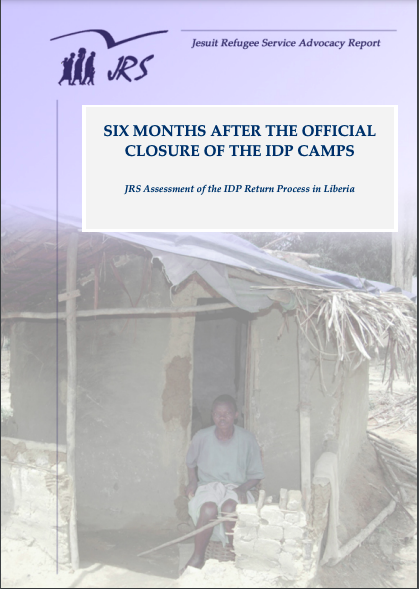
The Jesuit Refugee Service provides an advocacy report on the state of the internally displaced persons (IDP) camps in Liberia, six months after their official closure in April 2006. This report finds that some IDPs have remained in the camp sites, and identifies the specific humanitarian concerns that have arisen as a result.
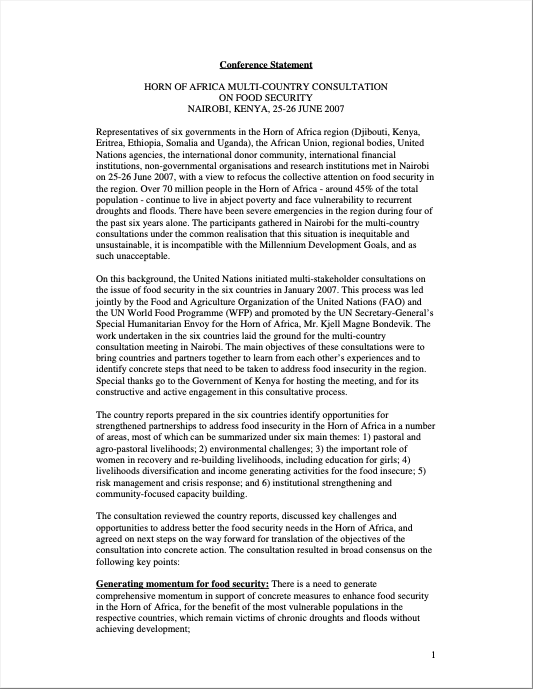
A statement from the Horn of Africa Multi-Country Consultation on Food Security Conference, with a view to refocus the collective attention on food security in the region. This conference was attended by representatives of six governments in the Horn of Africa region, the African Union, regional bodies, United Nations agencies, the international donor community, international financial institutions, non-governmental organisations and research institutions. The statement contains broad consensuses reached, as well as next steps for further action.
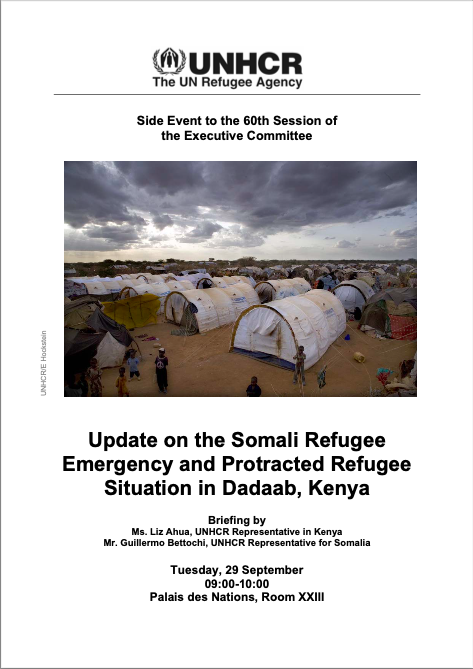
A concept note and flyer regarding a side event to the 60th session of the UNHCR Executive Committee, entitled “Update on the Somali Refugee Emergency and Protracted Refugee Situation in Dadaab, Kenya.” This event provides an update on the dramatic increase in the forced displacement of Somali, and the resulting overcrowding of refugee camps in Dadaab.
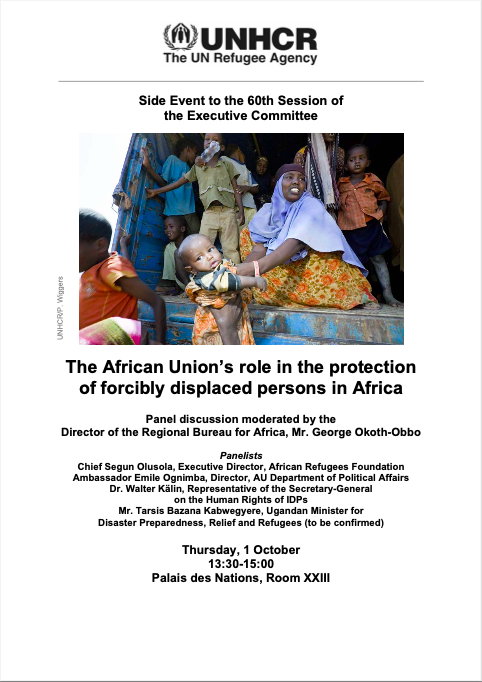
A concept note and flyer regarding a side event to the 60th session of the UNHCR Executive Committee, entitled “The African Union’s Role in the Protection of Forcibly Displaced Persons in Africa.”
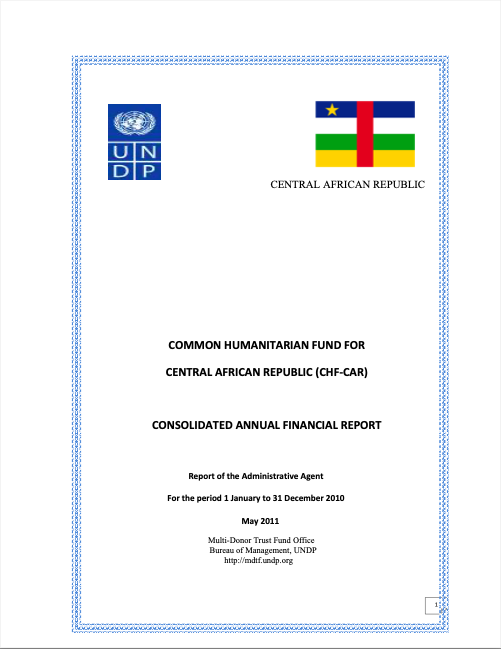
This consolidated annual financial report on the Central African Republic Common Humanitarian Fund was prepared by the United Nations Development Programme Multi‐Donor Trust Fund Office. This report covers the period 1 January to 31 December 2010 and provides financial data on progress made in the implementation of projects funded by the Central African Republic Common Humanitarian Fund.
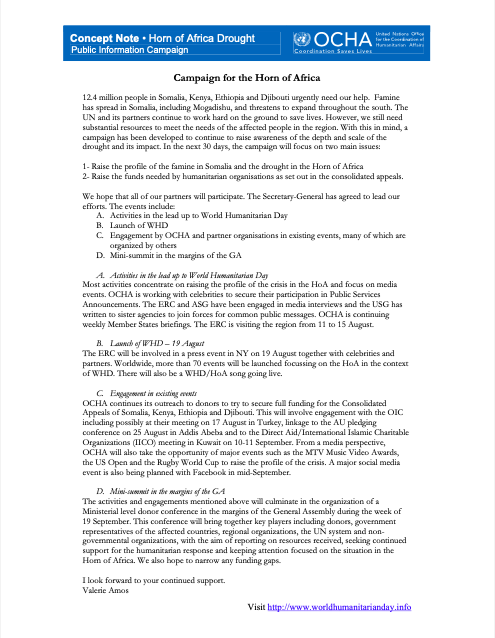
This concept note discusses the launch of the OCHA Horn of Africa Drought Public Information Campaign, developed to raise awareness of the depth and scale of the drought and its impact. The campaign focused on two main issues, (1) to raise the profile of the famine in Somalia and the drought in the Horn of Africa, and (2) to raise the funds needed by humanitarian organizations as set out in the consolidated appeals.

The chairperson’s summary and recommendations from the UN Food and Agriculture Organization’s international meeting “Emergency in the Horn of Africa: Follow-Up and Response Actions.” This meeting took stock of the evolving situation, reviewed actions taken to date and identified measures required to address urgent needs, including funding gaps, as well as longer term follow-up investments and actions required to build resilience and tackle the root causes of crisis vulnerability in the Horn of Africa (HoA).
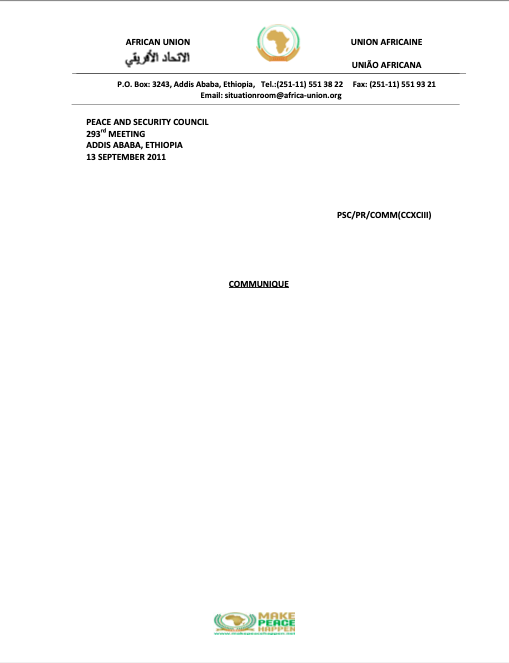
This communique details the decisions adopted by the Peace and Security Council of the African Union at its 293rd meeting in regards to the situation in Somalia.
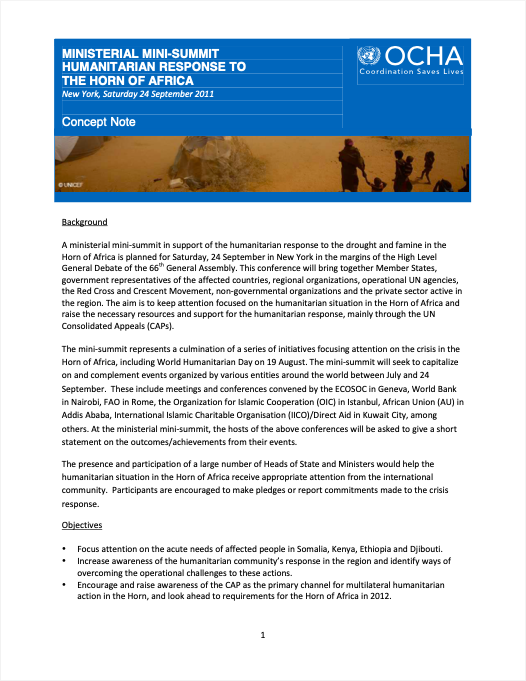
This OCHA concept note provides background information regarding a ministerial mini-summit in support of the humanitarian response to the drought and famine in the Horn of Africa. The aim is to keep attention focused on the humanitarian situation in the Horn of Africa and raise the necessary resources and support for the humanitarian response, mainly through the UN Consolidated Appeals (CAPs). The note also contains information regarding objectives, level of participation and a programme.
![Africa_SCom_March21_NGO_Statement_ORAL[1].pdf_0](https://www.icvanetwork.org/uploads/2021/07/Africa_SCom_March21_NGO_Statement_ORAL1.pdf_0.png)
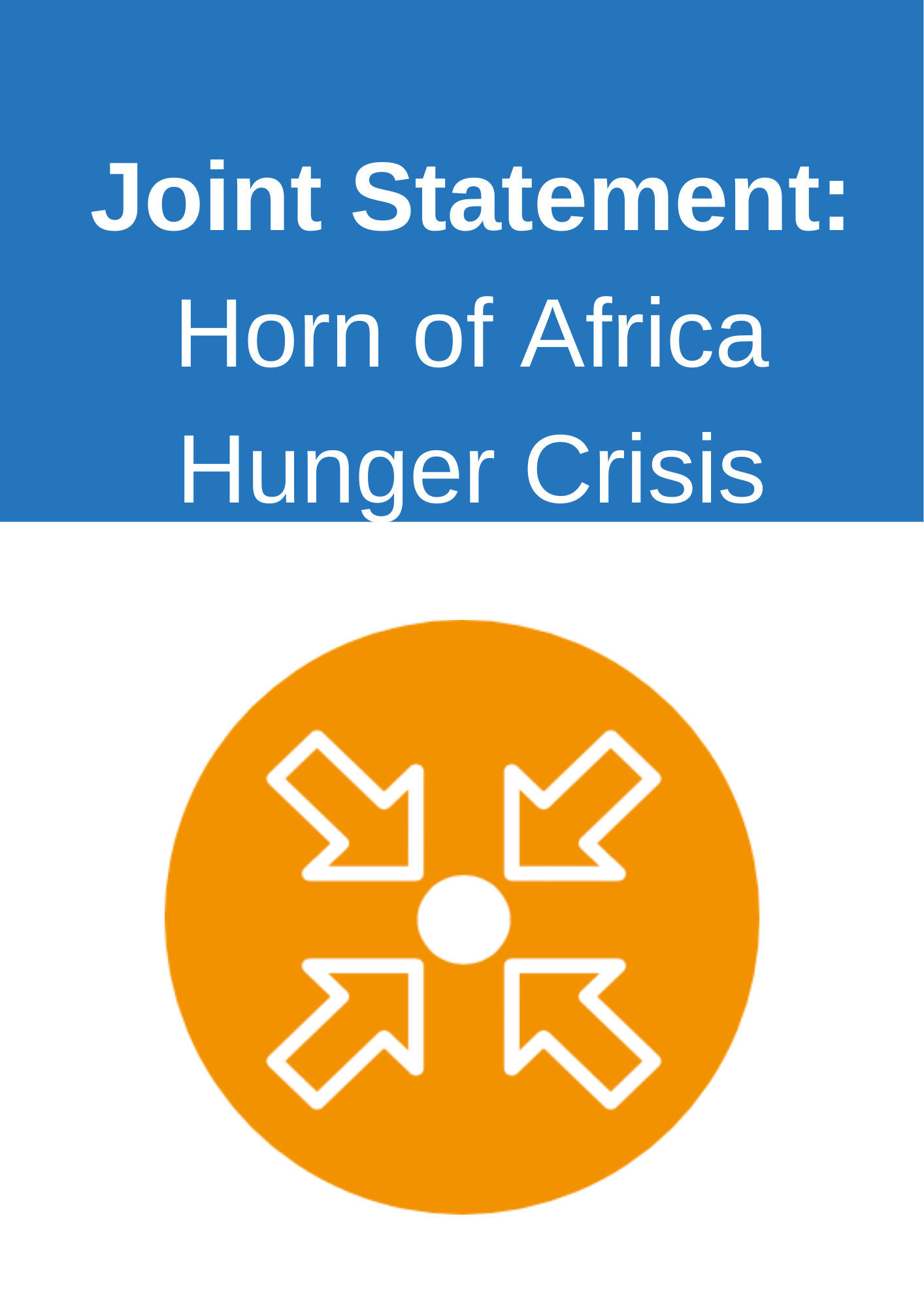
As donors convene in Geneva from 25 April 2022, 53 NGOs and NGO networks have released a statement calling for an urgent and substantial step-up in funding and leadership to respond to the humanitarian catastrophe facing millions in the Horn of Africa due to the severe drought, warning that further delays will cost lives.

The 2022-2024 direction papers set the focus of ICVA’s work in Africa, Asia and the Pacific, Latin America, and MENA regions. They are guided by the ICVA 2030 Strategy.
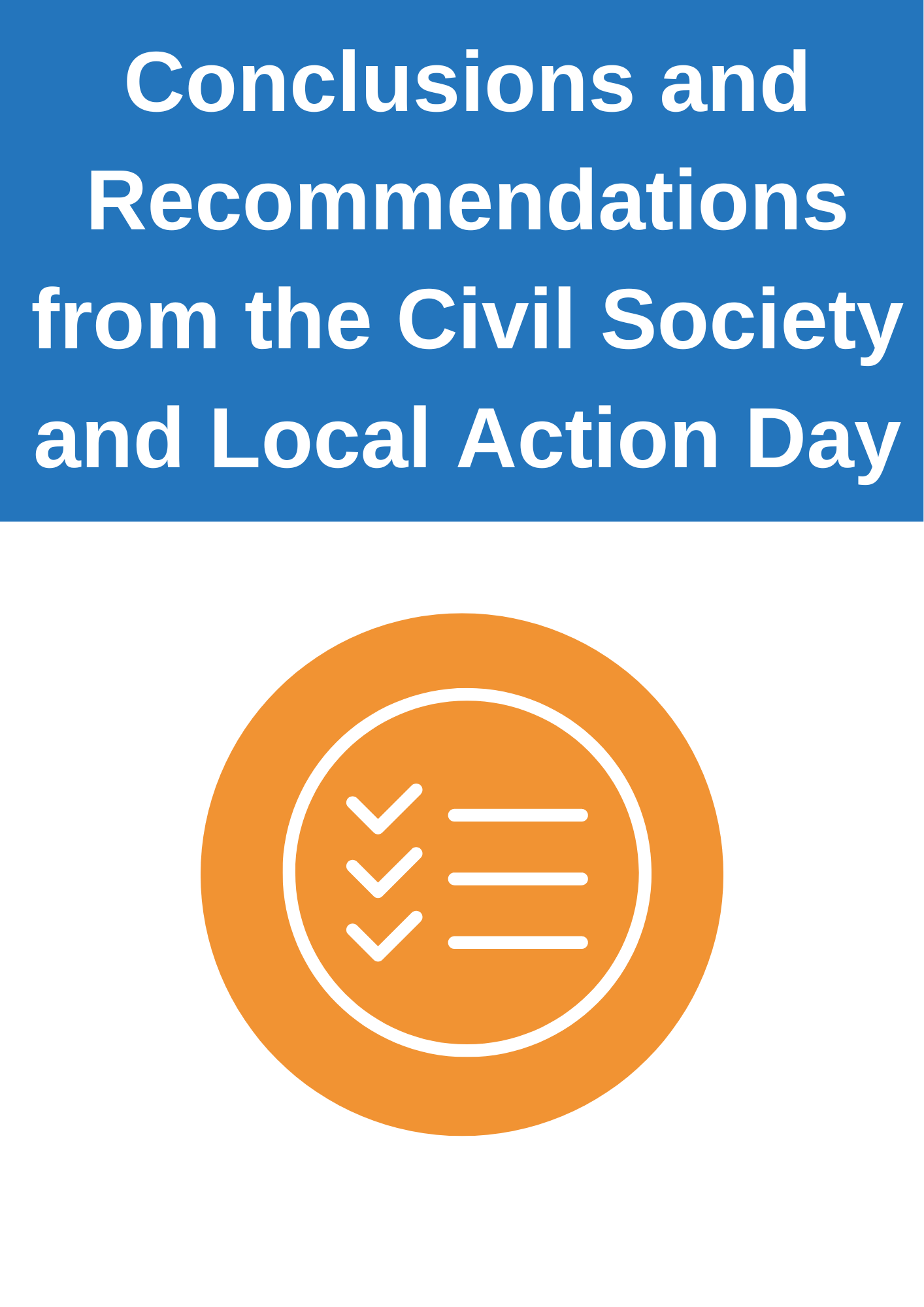
Conclusions and recommendations from the Civil Society and Local Action Day on 9 October at the side-lines of the African Union’s High Level Food Security and Nutrition Conference in Addis Ababa.
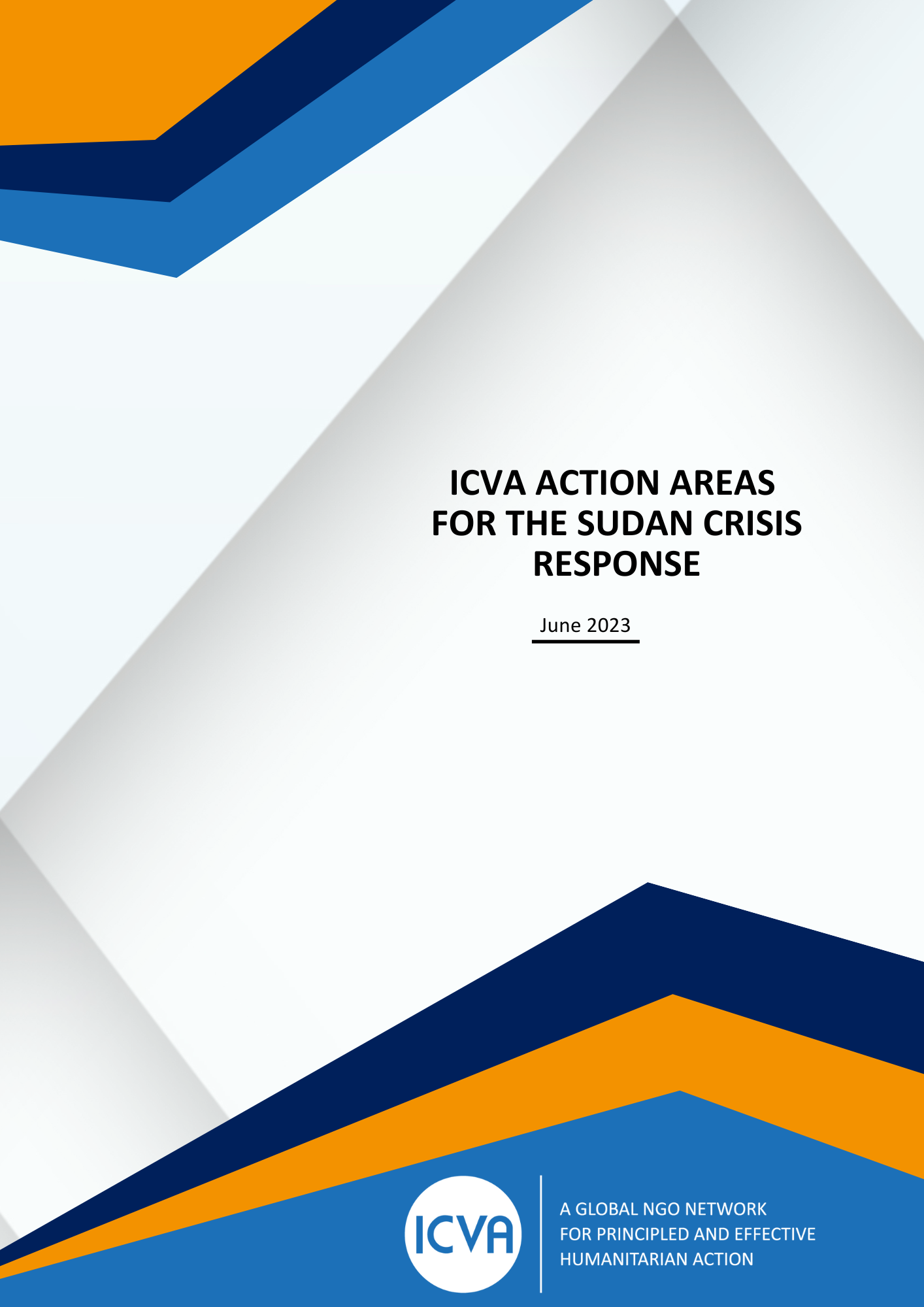
The ongoing crisis in Sudan has resulted in over 860 deaths, with tens of thousands of civilians displaced and fleeing to neighboring countries. Key infrastructure and services, including health facilities and water access, have been severely impacted, leaving millions of people without access to basic necessities. The humanitarian response efforts have also been compromised, with looting of humanitarian assets and offices hindering effective action in key locations. Despite these challenges, NGOs are committed to delivering aid and support to those in need. This crisis is likely to require a protracted response, and offers an opportunity to strengthen local capacities and resilience, improve coordination, and ensure a more principled and effective response. The ICVA Secretariat is taking an approach to support NGOs during the crisis.
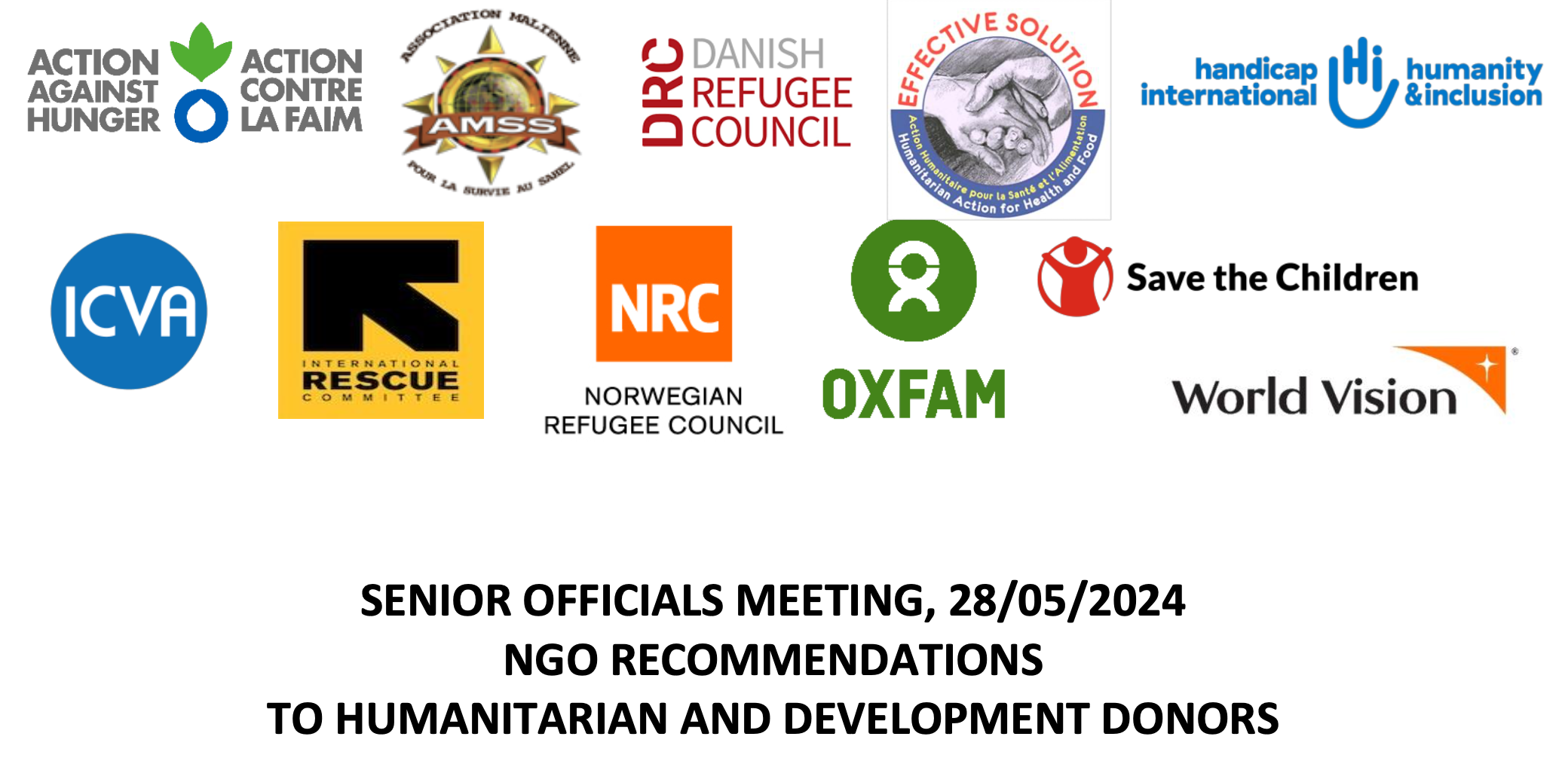
NGO recommendations for the EU Senior Officials Meeting on “Scaling up the humanitarian response to the crises affecting countries of the Sahel and Lake Chad basin regions”, 28 May 2024, Belgium.
The Senior Officials Meeting aims to raise the attention of the international donor community on the humanitarian impact of the ongoing crises and their drivers affecting the populations in Sahel and Lake Chad countries, notably, Mauritania, Mali, Burkina Faso, Niger, Nigeria, Cameroon and Chad.
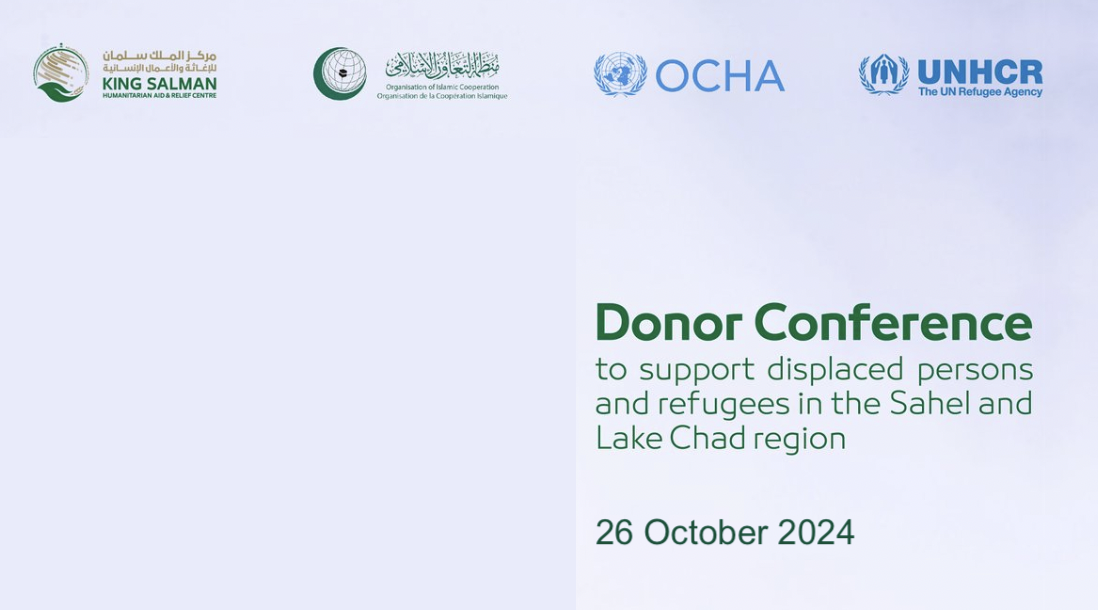
The Sahel and Lake Chad Basin countries – Nigeria, Niger, Chad, Cameroon, Burkina Faso and Mali – are experiencing an unprecedented, long-lasting and multi-faceted crisis.
Saudi Arabia will host a donors conference to support displaced persons and refugees in the Sahel and Lake Chad region on 26 October 2024, in cooperation with the Organization of Islamic Cooperation (OIC), the United Nations Office for the Coordination of Humanitarian Affairs (OCHA) and the United Nations High Commissioner for Refugees (UNHCR).
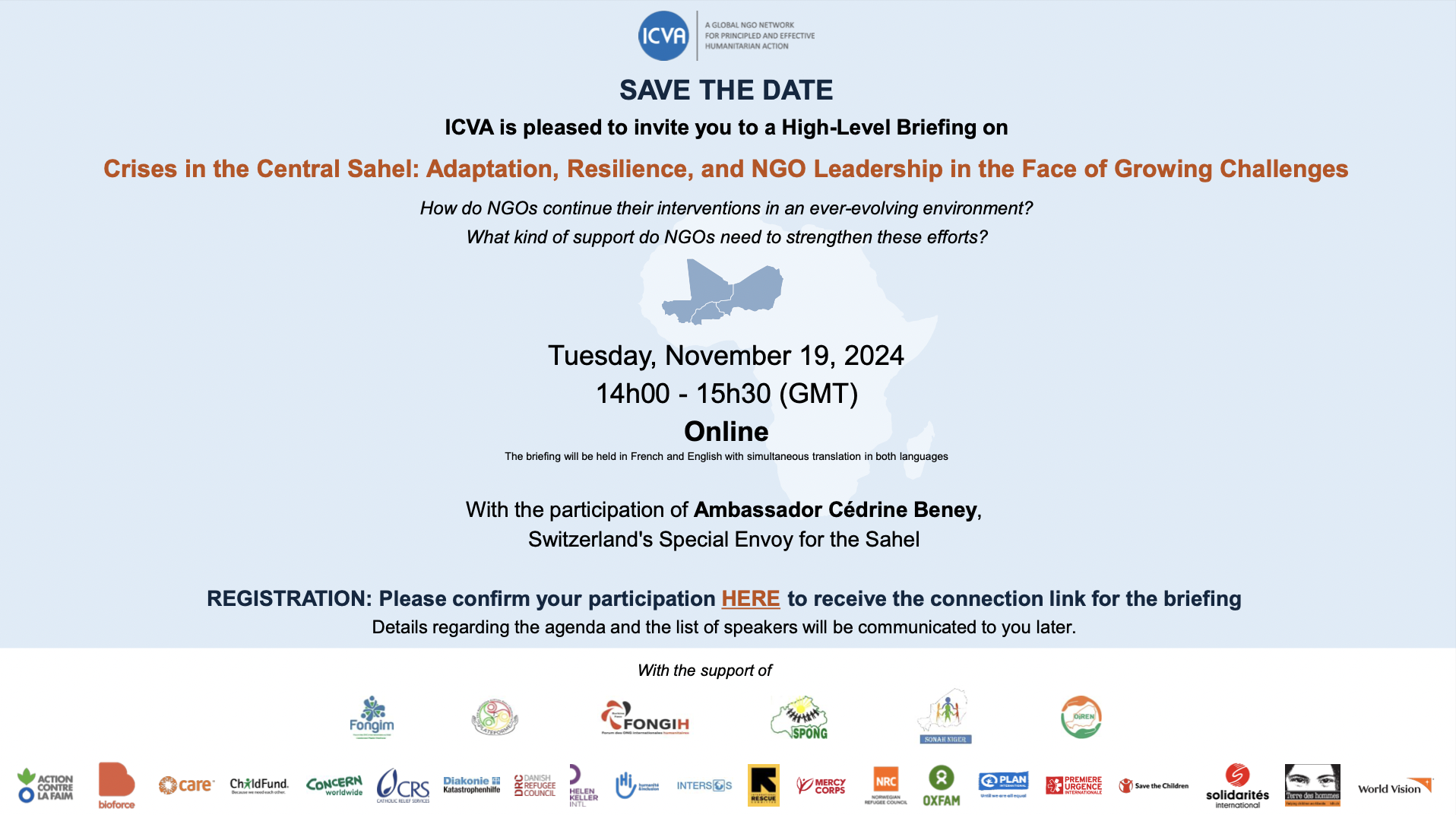
The following documents relate to the online meeting on 19 November 2024, Crises in the Central Sahel: Adaptation, Resilience, and NGO Leadership in the Face of Growing Challenges
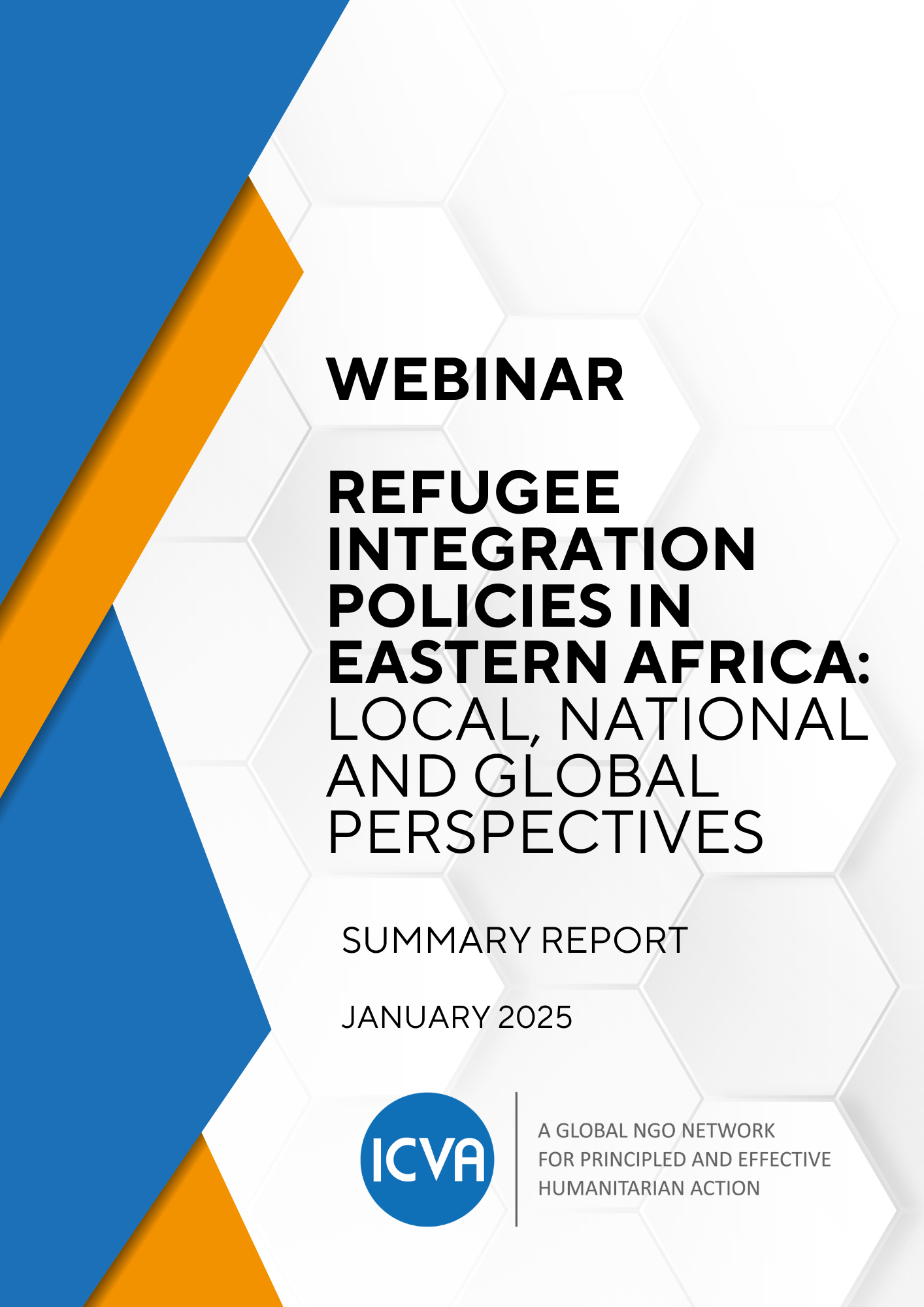
The Summary Report of the Webinar on Refugee Integration Policies in Eastern Africa: Local, National and Global Perspectives, held on 30 January 2025. The event highlighted efforts to strengthen peer exchange, collaboration, and collective action within ICVA’s membership across East and Southern Africa and beyond. It provided a platform to connect members, enabling their contributions to ICVA’s global policy and advocacy efforts while influencing refugee integration and durable solutions at both regional and global levels. It also facilitated the sharing of best practices in programme implementation, policy-making, and advocacy, fostering mutual learning among participants.
Click on the below link to read the Summary report.
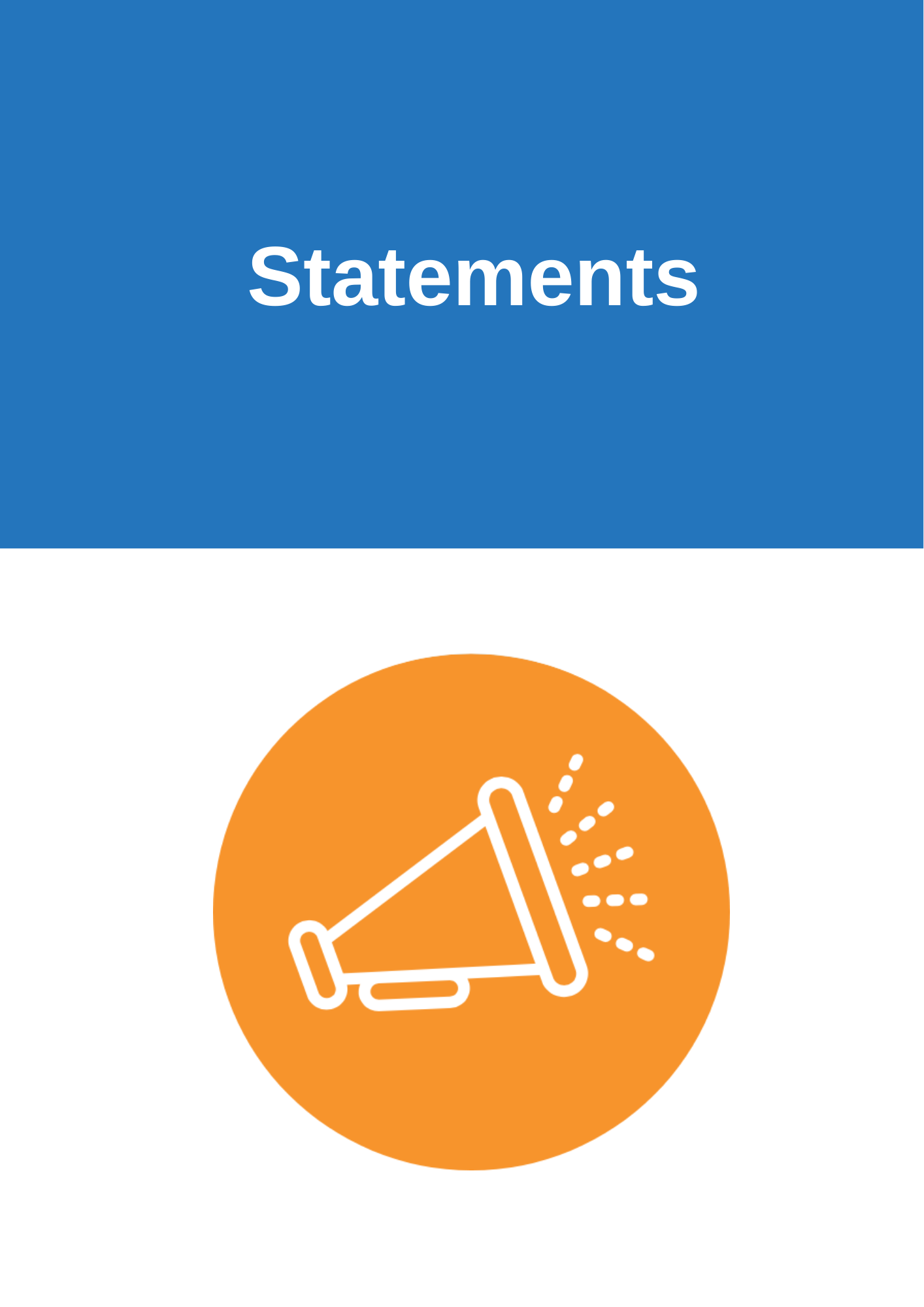
As African Leaders meet in Addis Ababa for the African Union (AU) Summit this week, all efforts should be deployed to address the long lasting and deteriorating crisis in eastern Democratic Republic of the Congo (DRC), where millions of people are trapped in an endless cycle of violence, displacement and humanitarian needs.
Click on the link below to read the Full Joint Statement by the Inter-Agency Working Group (IAWG) and the FONGA (Forum des ONG en Afrique de l’Ouest et Centrale.

Addis represents ICVA in East and Southern Africa.



Issie is an advocacy and communications specialist with a focus on ensuring documented policy outcomes for the protection of displaced populations globally. Joining ICVA in November 2024, Issie brings over eight years’ experience engaging diverse stakeholders, across crises and contexts, for the promotion of International Humanitarian Law, principled humanitarian access, and civilian protection from violence. Prior to ICVA, Issie was leading Action Against Hunger’s advocacy and communications in the occupied Palestinian territory.
As part of ICVAs Forced Migration team, Issie supports members in their work to ensure people are protected, and can access timely, quality and sustainable assistance and solutions.
Issie holds a master’s degree from the London School of Economics and Political Sciences in International Development and Humanitarian Emergencies.
The ICVA MENA Regional Hub was established in October 2013 and is based in Amman, Jordan.
Since being established, the Hub has engaged in a number of activities that have fed into ICVA’s global strategy within ICVA’s core focus areas of forced displacement, humanitarian coordination and financing.
This platform is for members to:
Topics addressed include: the Grand Bargain, Global Compact on Refugees, IASC Regional Network, and regional engagement with diverse humanitarian actors.
To join the group contact the ICVA MENA Regional Representatives.
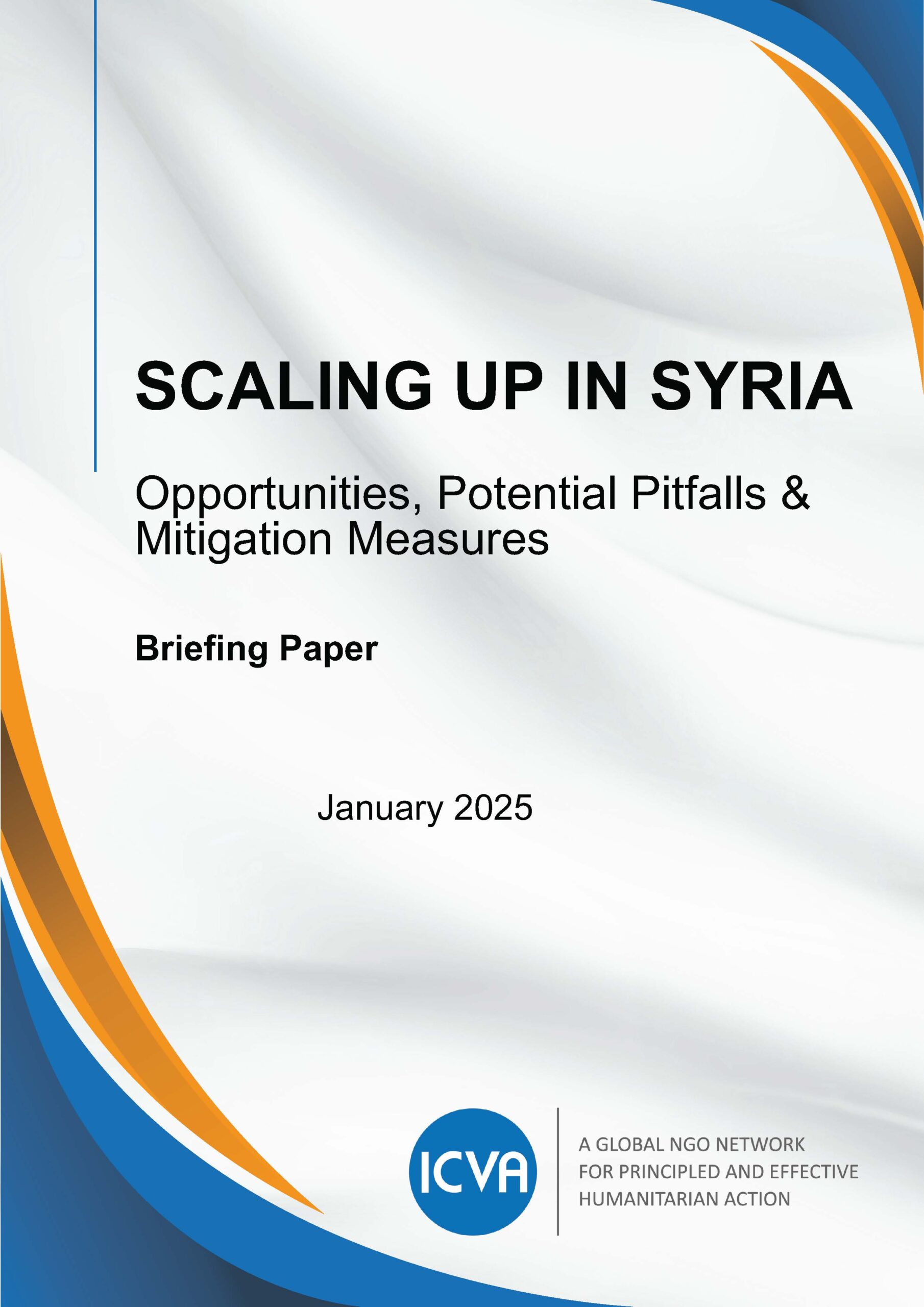
After nearly 14 years of devastating civil war, which forcibly displaced over 12 million people and claimed more than 600,000 lives, Syria stands at a pivotal moment of transition following the fall of the Assad regime. This juncture offers hope for recovery and stability, but it also brings complex challenges that require a coordinated, inclusive, and principled humanitarian response.
On 16 December 2024, the IASC Principals endorsed a Systemwide Scale-up to intensify humanitarian efforts, marking the third such activation in Syria’s history. Central to the effectiveness of both the Scale-up and early recovery is Syria’s vibrant civil society, which has demonstrated exceptional resilience, leadership, and operational capacity throughout the conflict. Their inclusion in decision-making and resource allocation is vital for both immediate relief and long-term recovery.
Equally vital to success is the active engagement of the international community in fostering the enabling environment for a principled and effective humanitarian response and early recovery.
Drawing from learnings from previous Scale-ups and consultations with ICVA members and NGO networks, this paper identifies opportunities and potential pitfalls to the Scale-up. It also proposes mitigation measures to ensure a principled and effective response and early recovery for Syria.
Click on the below link to read the paper.

The 2022-2024 direction paper sets the focus of ICVA’s work in the Middle East and North Africa Region and is guided by the ICVA 2030 Strategy.
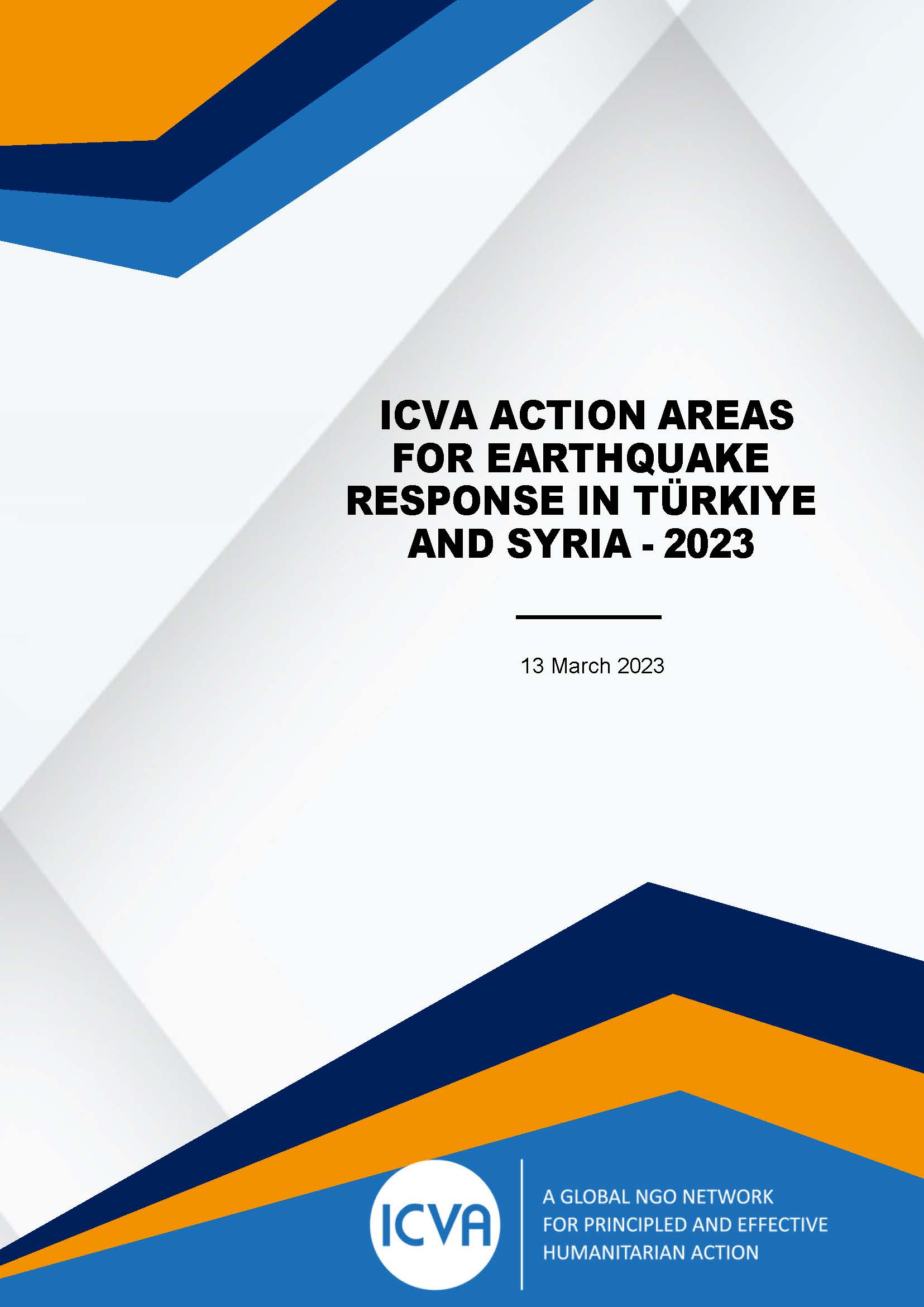
ICVA’s approach to support NGOs during the Türkiye and Syria Earthquake.
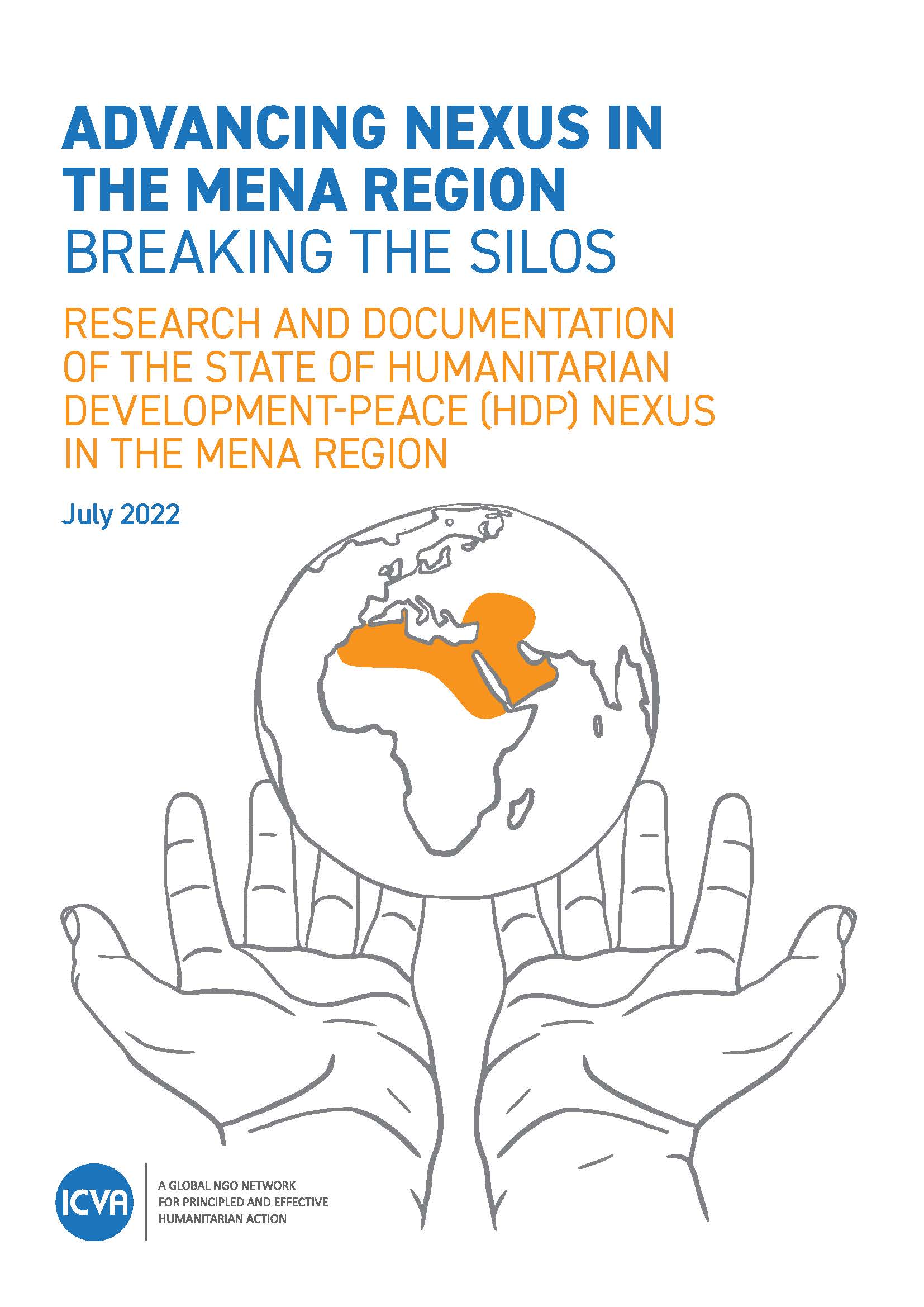
The research aims to better understand the current stage of the operationalization of the The Humanitarian- Development – Peace Nexus approach in the selected MENA region countries of Iraq, Syria, Syria cross-border from Turkey, Jordan, Lebanon, Palestine, Yemen, and Libya. It documents policy changes and situational changes that reflect the NEXUS approach. It also provides good practices and examples to various actors to help them develop guiding tools and strategic thinking around inclusion of NEXUS approaches in strategies, programs, etc.
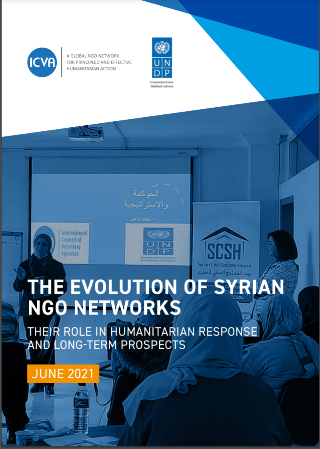
This study is part of the larger Syrian NGO Network Engagement and Partnership Programme, carried out by ICVA in strategic partnership with UNDP Syria. It aims to document the evolution of Syrian NGO networks over time, emphasizing how they have played a role in collective advocacy work and representation for local Syrians.
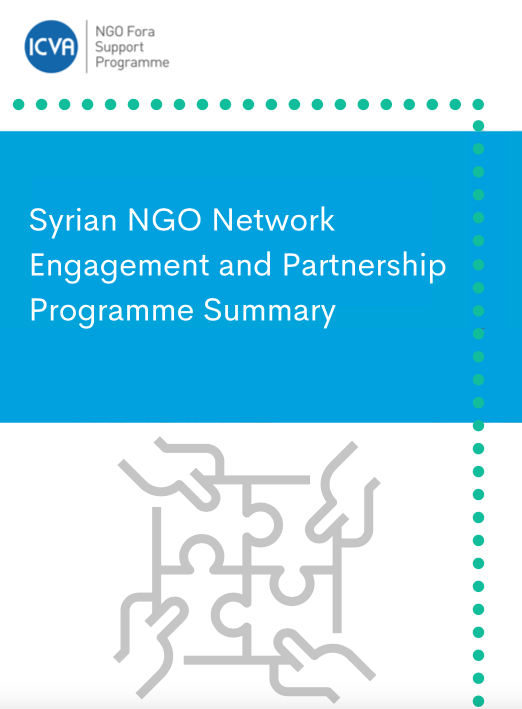
The Syrian NGO Network Engagement and Partnership Programme is a strategic partnership between UNDP and ICVA to strengthen the capacity of Syrian NGO/CSO networks to enable them to play a vital role in joint coordination and representation by strengthening skills and capacity across a range of areas including joint coordination, governance, and strategic planning.
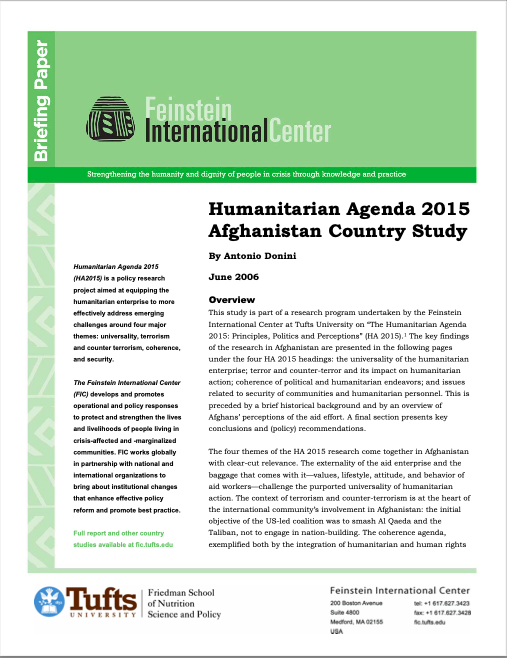
This briefing paper is a report on a research program undertaken by the Feinstein International Center at Tufts University on “The Humanitarian Agenda 2015: Principles, Politics and Perceptions.” The key findings of the research are related to the universality of the humanitarian enterprise; terror and counter-terror and its impact on humanitarian action; coherence of political and humanitarian endeavors; and issues related to security of communities and humanitarian personnel.
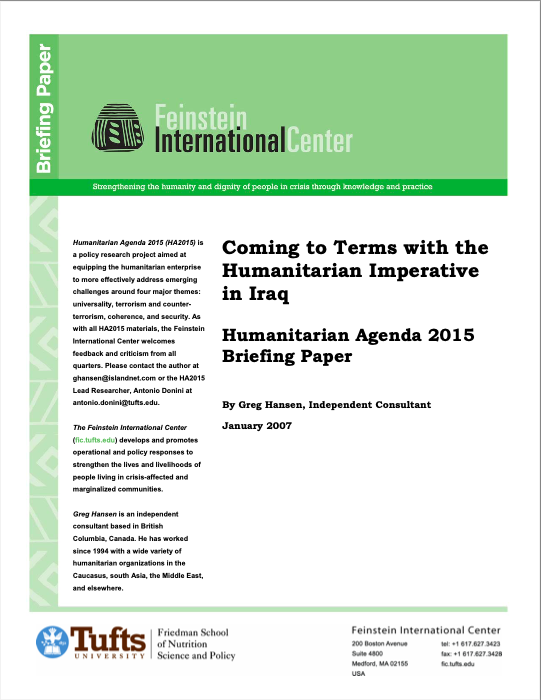
This report briefly summarizes an Iraq country study as part of the Humanitarian Agenda 2015: Principles, Power and Perceptions (HA 2015) initiative, an independent research project of the Feinstein International Center, Tufts University. Following a series of observations about how humanitarianism is currently perceived in Iraq, this report highlights findings regarding the operational environment, donor environment, and strategic policy environment.
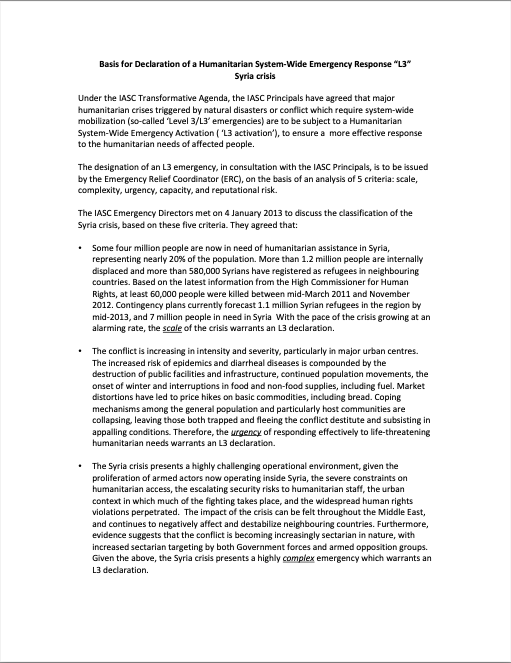
This document summarizes the IASC Emergency Directors’ recommendation that the IASC Principals declare an L3 IASC System-Wide Emergency Response to the Syria crisis, and propose that this declaration trigger the measures outlined in the L3 accompanying measures attached.
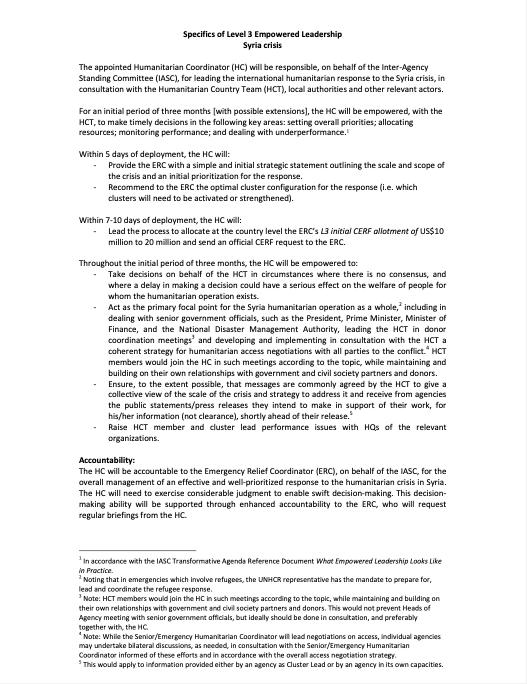
This document details the Humanitarian Coordinator’s role in leading the international humanitarian response to the Syria crisis, as a result of the Emergency Relief Coordinator’s activation of a system-wide Level 3 response. The Humanitarian Coordinator and Humanitarian Country Team are empowered to make decisions in the following key areas: setting overall priorities; allocating resources; monitoring performance; and dealing with underperformance.
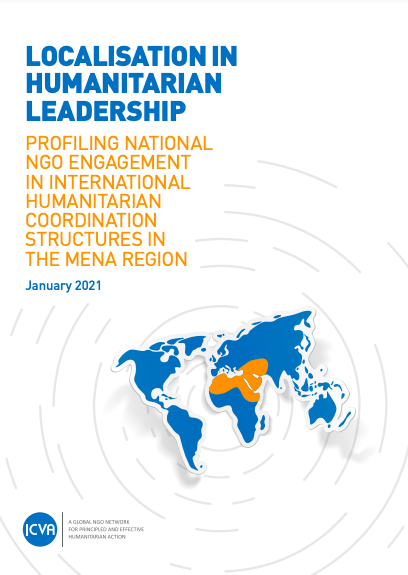
Against the current background of sustaining local responses, ICVA initiated this research aiming at mapping and documenting the extent of effective and meaningful NNGOs engagement in international humanitarian coordination structures. Focusing in specific at MENA region, the research explores NNGOs engagement in Humanitarian Country Teams (HCTs), Country-Based Pooled Fund (CBPF) Advisory Boards, and sector or cluster coordination platforms. The contexts covered are Iraq, Jordan, Lebanon, Libya, the occupied Palestinian territories, Syria (Damascus and Turkey-based operations as well as the Whole of Syria response), and Yemen. Drawing on both qualitative and quantitative data, this research briefly profiles national leadership within the seven responses across MENA and outlines the state of NNGO engagement across the region.
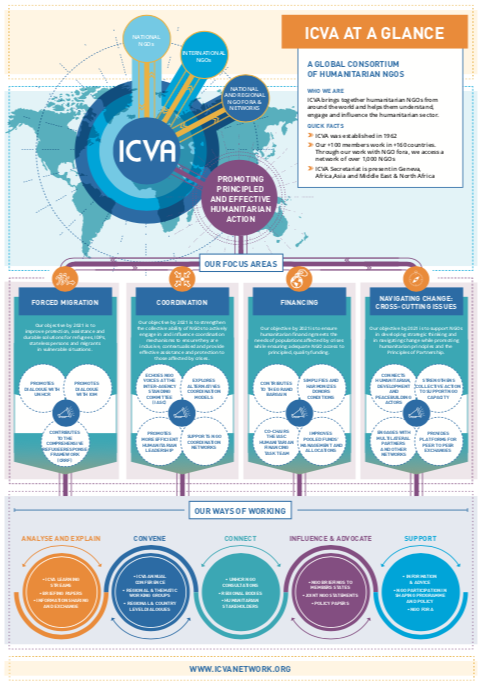
Nam fringilla nibh sapien, ac tempor mi porta eget. Fusce lectus erat, tincidunt id quam nec, auctor elementum mauris. Nulla nibh mi, elementum at risus ac, aliquam commodo nisi. Integer tincidunt metus erat, ac pulvinar lorem pretium eu

The 2022-2024 direction papers set the focus of ICVA’s work in Africa, Asia and the Pacific, Latin America, and MENA regions. They are guided by the ICVA 2030 Strategy.
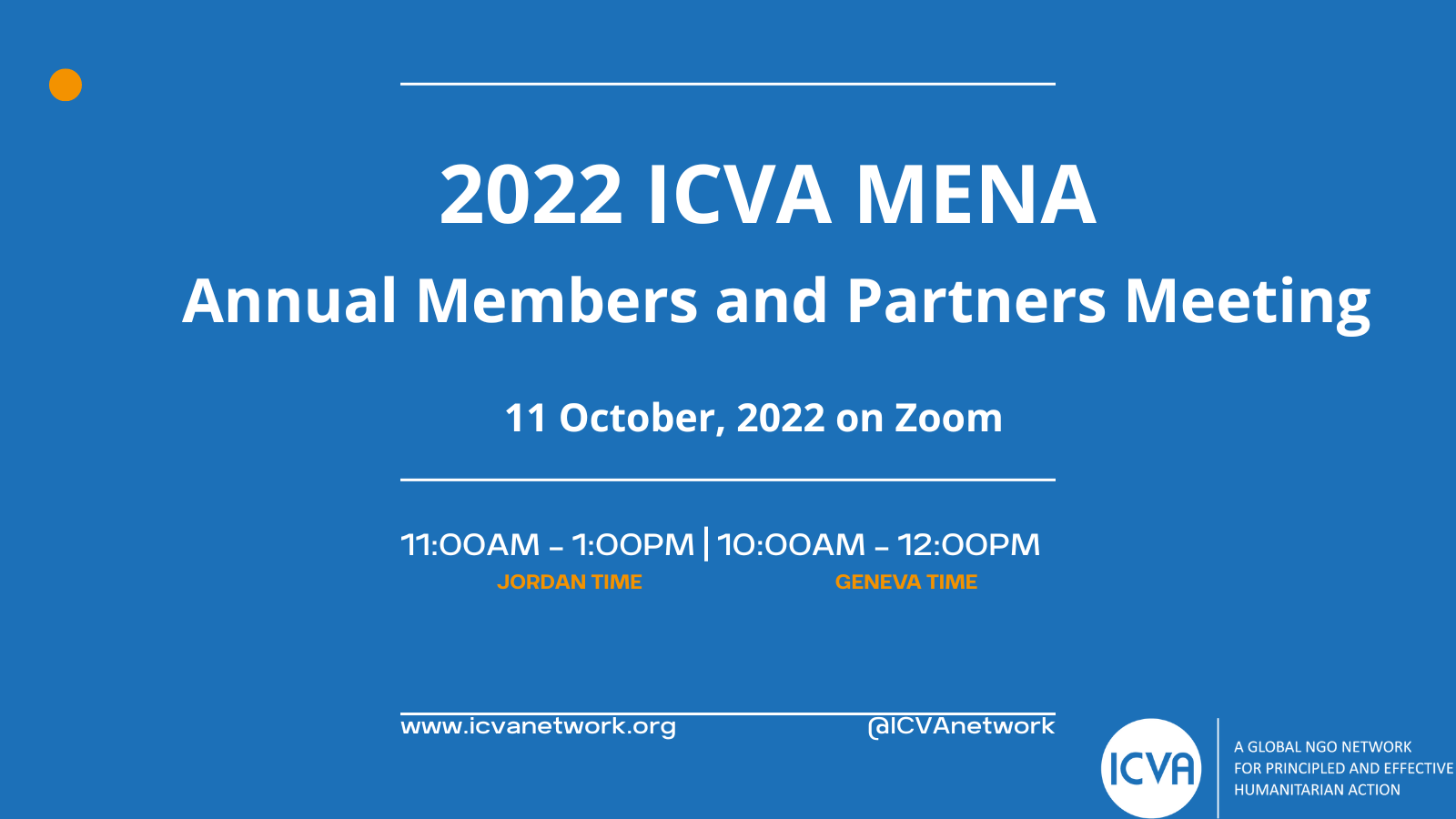
PowerPoint presentations on:
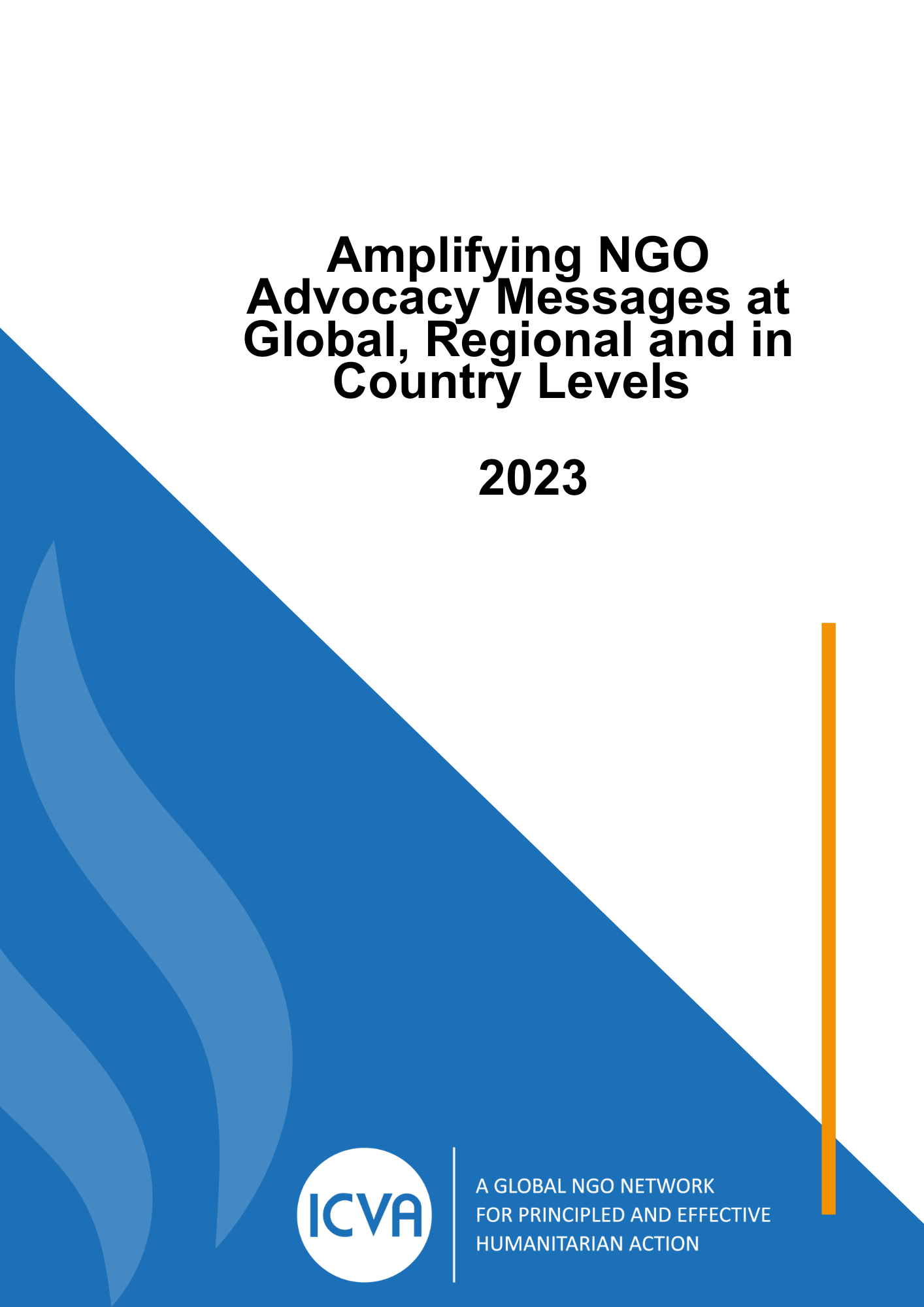
In the face of devastating earthquakes in Türkiye and Syria, ICVA is amplifing the voices of its members and calls for:

Statement by Principals of the Inter-Agency Standing Committee, on the situation in Israel and the Occupied Palestinian Territory, “We need an immediate humanitarian ceasefire.”
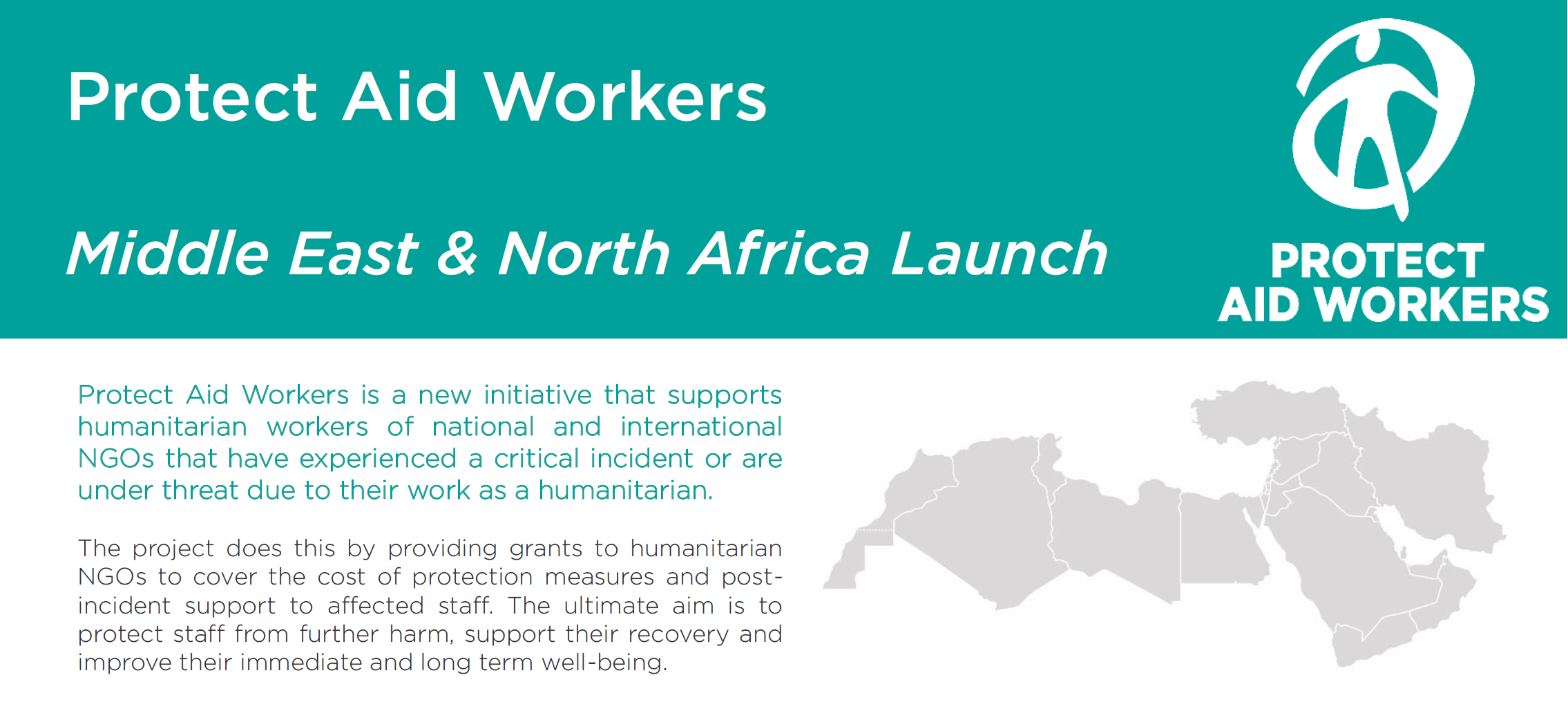
Protect Aid Workers is a new initiative that supports humanitarian workers of national and international NGOs that have experienced a critical incident or are under threat due to their work as a humanitarian.
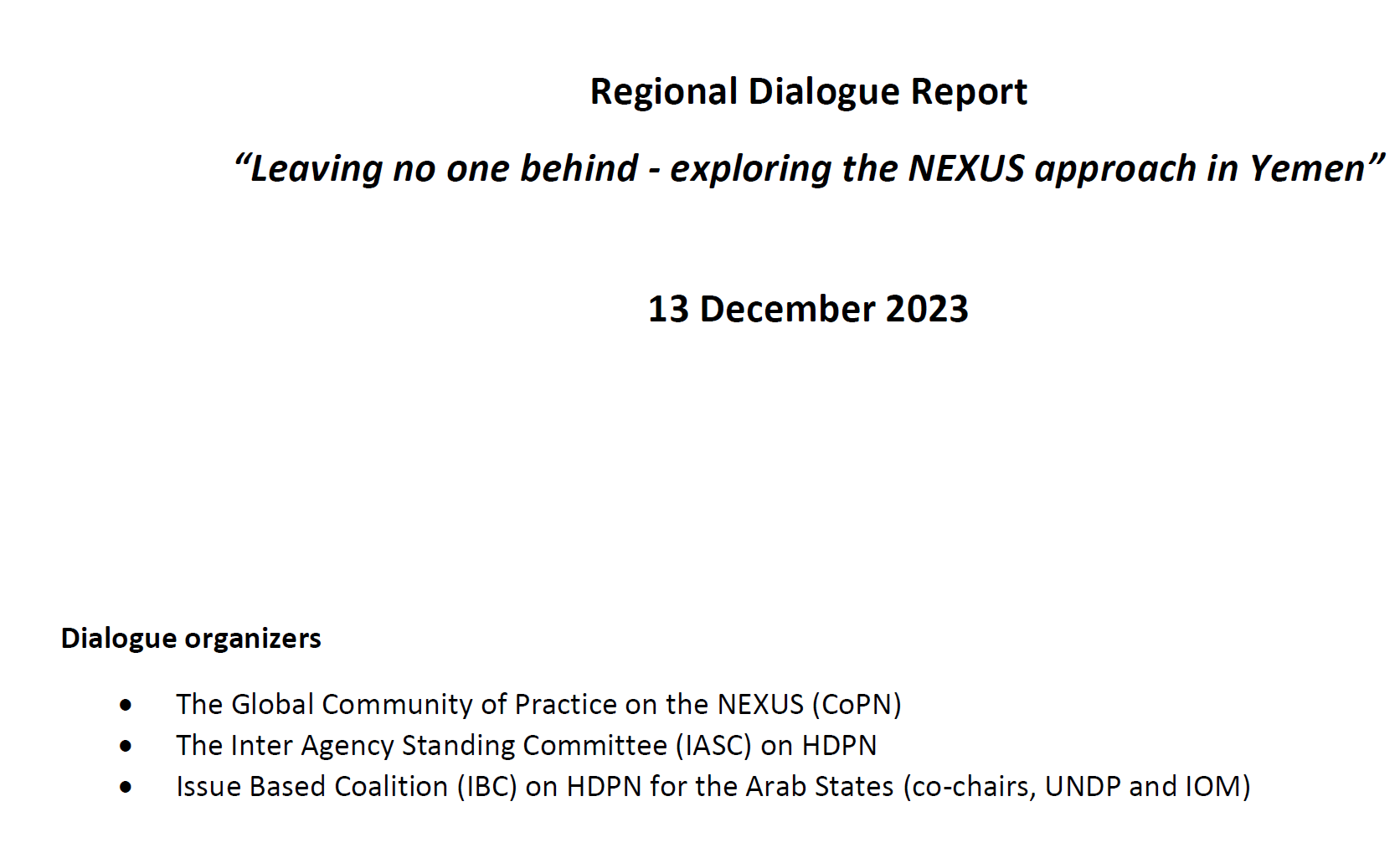
The OECD-DAC recommendations highlight the interconnectedness of humanitarian, development, and peace actions within the Humanitarian, Development, and Peace Nexus (HDPN). The outcomes of a December 2023 dialogue in the region showcased experiences and lessons from various organizations in Yemen, emphasizing strategic approaches, stakeholder capacities, community assessment tools, and the transition from relief to resilience and recovery. These conclusions align with global evidence on HDP Nexus practices, emphasizing the importance of addressing coordination complexity, risk mitigation, financing, local ownership, leadership, and accountability.
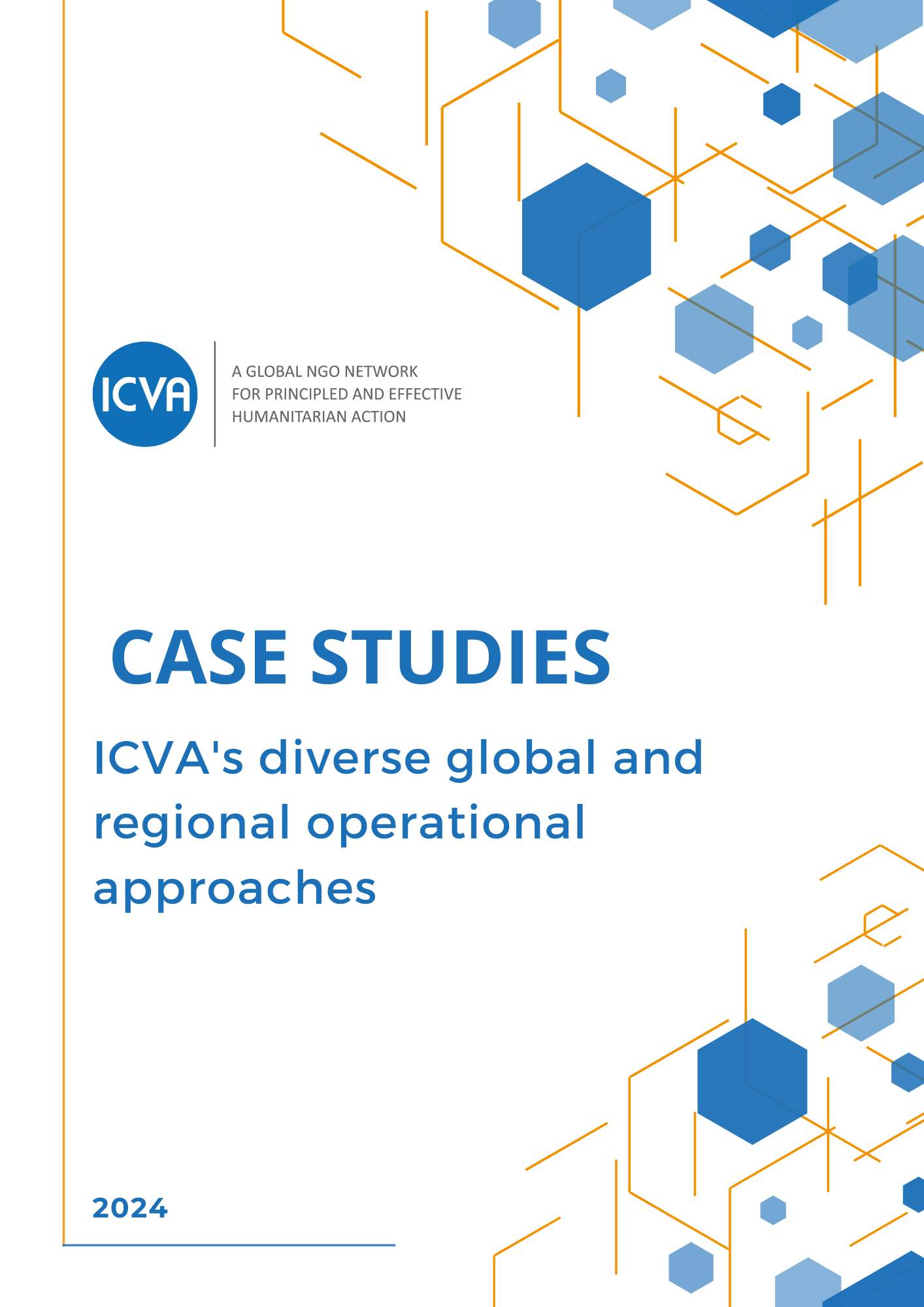
ICVA showcases its diverse global and regional operational strategies through five case studies

A group of 13 Humanitarian NGOs have released a statement urging for political and diplomatic measures to prevent further civilian harm and regional escalation in the Middle East.
Click on the below link to read the statement.
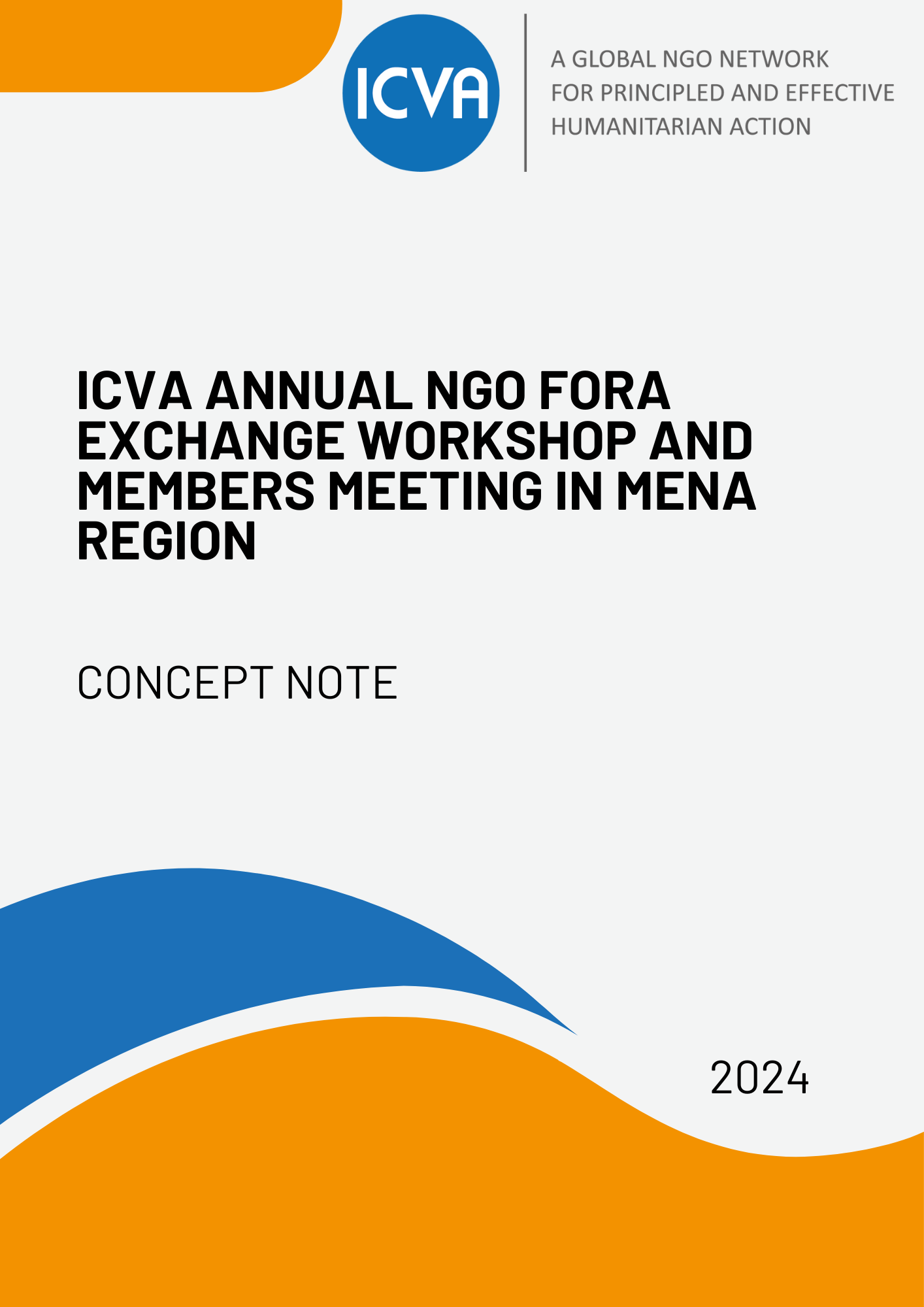
The Annual MENA NGO Fora Workshop Exchange and Members Meeting will take place from 8 – 10 October 2024. The theme is: Strengthening NGO Coordination: Insights for Humanitarian Collaboration in Challenging Environments.
Click on the below link to access the Concept Note.
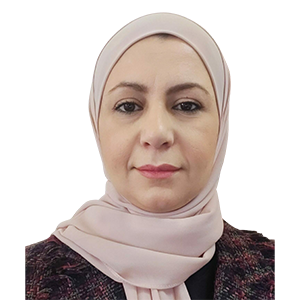
Since 2019, Eman has been representing ICVA in MENA and is the focal point on localization.
With over 15 years of experience as an emergency and development professional leader working in the humanitarian sector, private and government sectors Eman has an extensive knowledge on localization, emergency and refugee response, community mobilization, NGO capacity building and Nexus. She is a certified trainer on PSEA and Leadership in Humanitarian and Fragile context.
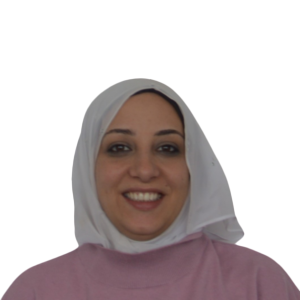
Stephanie has 10 years of experience working with local and international NGOs in the MENA region on different advocacy initiatives and research.
Before joining ICVA in 2020, Stephanie worked as the Country Program Manager for HelpAge International in Jordan, with a focus on policies and strategies related to ageing and disability. She has also worked in the United States House of Representatives as Immigration and International Affairs Specialist. Stephanie has experience on promoting inclusion and localization agendas. She also has experience in conducting trainings on inclusive approaches to humanitarian and development interventions.
She has a degree in International Relations focused on the Middle East, and a masters in Public Administration, both from universities in the US.
In September 2019, ICVA joined in partnership with FM4 Paso Libre in Guadalajara, Mexico to extend ICVA’s presence in the region. FM4 Paso Libre is a non-profit organization dedicated to the defence and promotion of human rights of migrants and refugees through comprehensive humanitarian assistance, advocacy and research in western Mexico. FM4 Paso Libre has been an active ICVA member since 2018.
This partnership extends ICVA’s reach and membership into the Latin America region with the intention of making humanitarian action more principled and effective by working collectively and independently to influence policy and practice.

The 2023-2025 direction paper sets the focus of ICVA’s work in the Latin America and Caribbean Region and is guided by the ICVA 2030 Strategy.
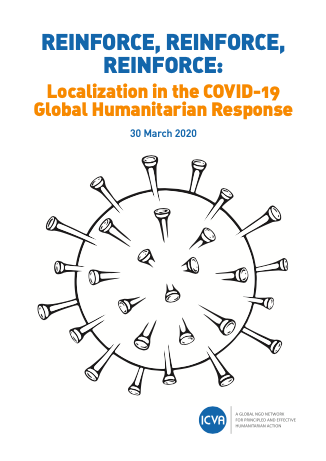
ICVA developed this note to support dialogue on strengthening principled and effective humanitarian action by NGOs during the COVID-19 response, with a focus on reinforcing local and national action wherever possible.
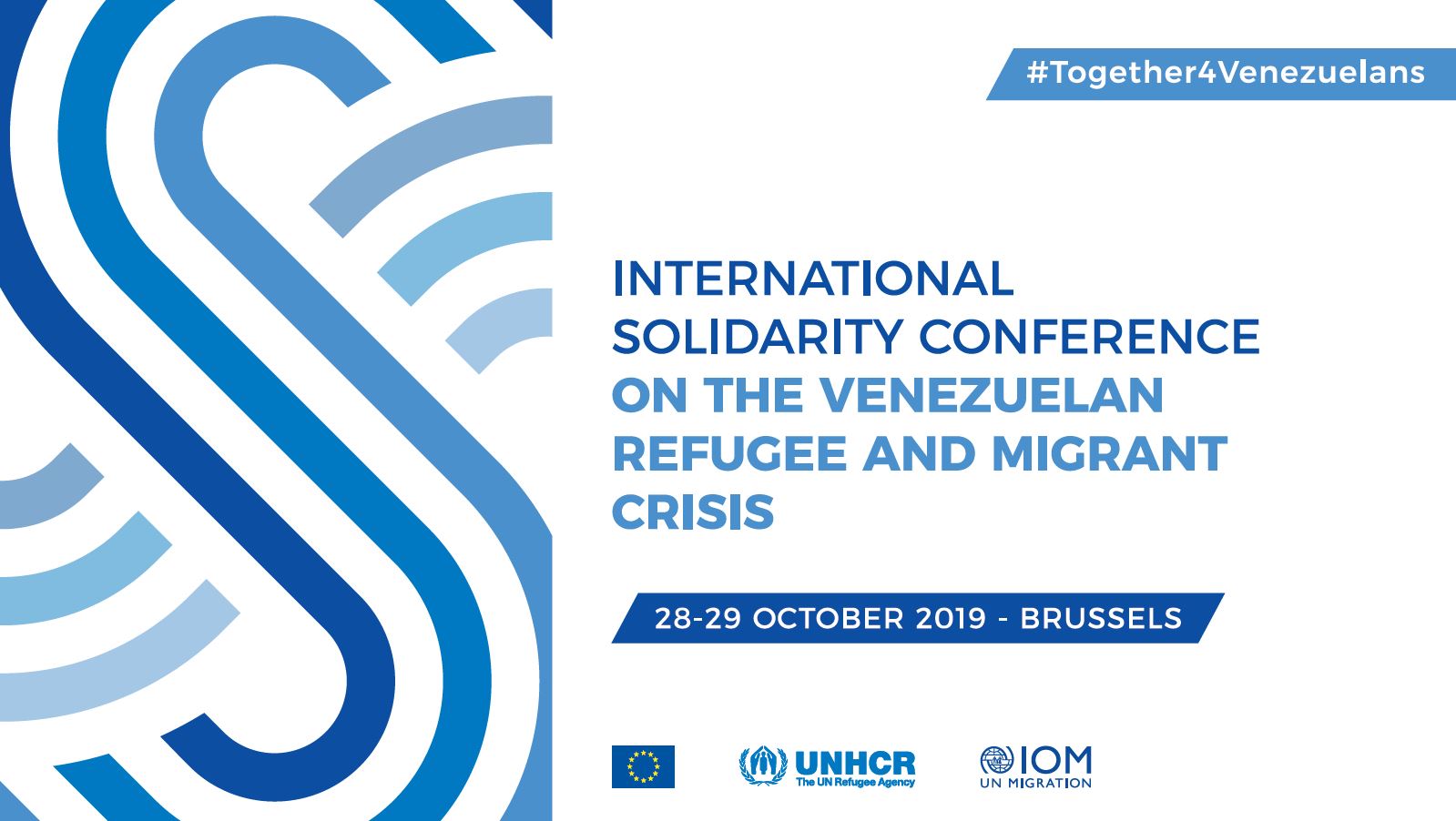
28-29 October 2019 in Brussels
The high-level International Solidarity Conference organized by the European Union, the UN Refugee Agency and the International Organization for Migration on 28-29 October in Brussels aimed to mobilise support in addressing the refugee and migrant crisis, demonstrate solidarity of the international community to the affected host countries and increase international support for a regional and coordinated response.
In this sense, through NGO networks (ICVA, InterAction, and Voice), NGOs worldwide and particularly those active in Latin America and the Caribbean region developed the following joint NGO statement on “Ensuring solidarity with displaced Venezuelans: supporting countries and communities hosting and protecting them”.
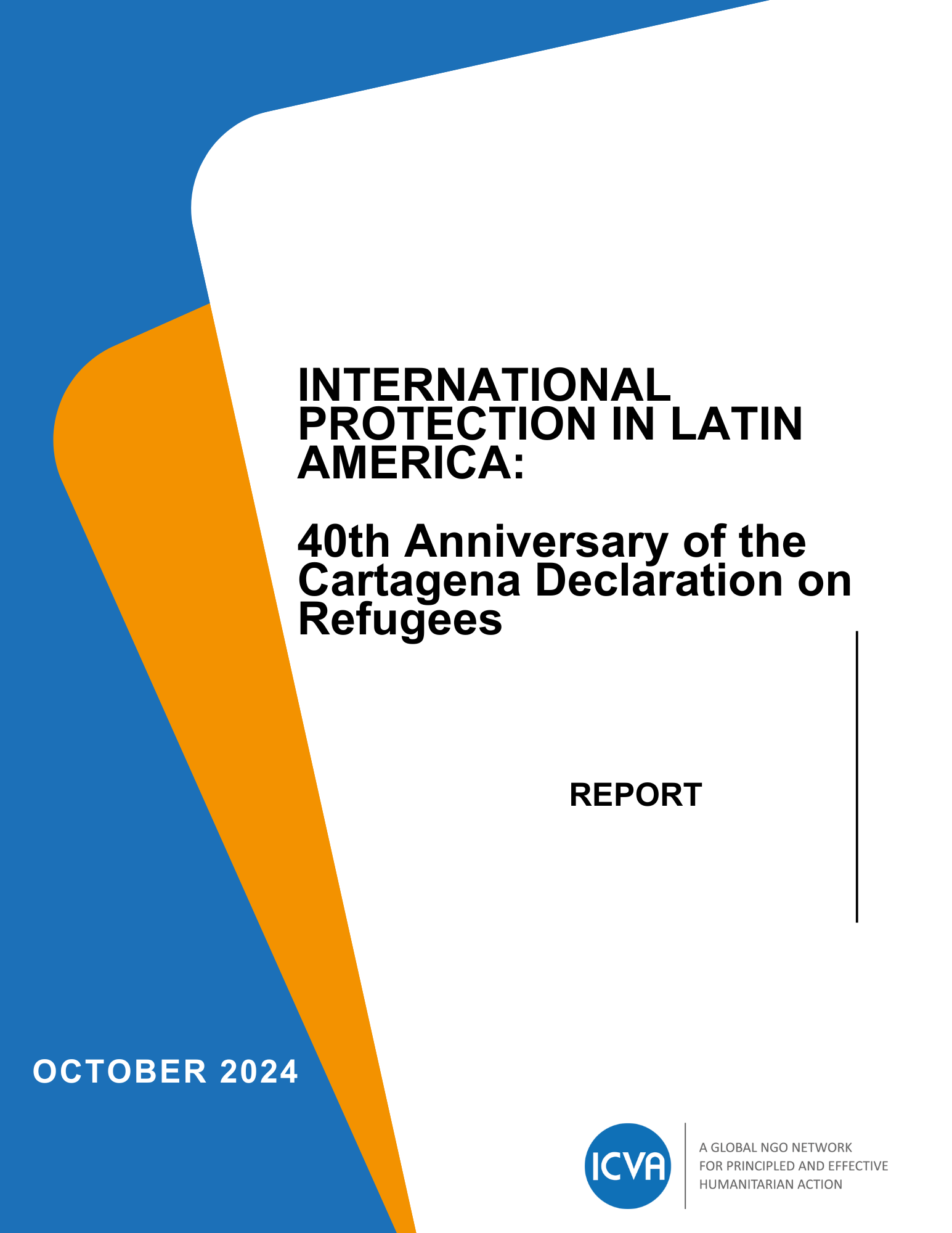
A report analysing the protection context in Latin America and the Caribbean. The report will be launched during the 40th anniversary celebrations of the Cartagena Declaration and will contribute to the upcoming Chile Declaration and Action Plan 2024-2034.
The Cartagena +40 Declaration and Plan of Action is set for adoption on 11-12 December in Santiago, Chile.
Click on the below links to read the report in English and Spanish.

The 2022-2024 direction papers set the focus of ICVA’s work in Africa, Asia and the Pacific, Latin America, and MENA regions. They are guided by the ICVA 2030 Strategy.

Lina has a B.A in International Studies and a Master’s degree in Gender Studies. She worked on the “Mexican Migration Project” coordinated by PhD Jorge Durand and PhD Douglas Massey. She is currently a professor at the University of Guadalajara in the Department of International Studies where she teaches international migration and gender studies. She is part of the advisory group of UN Women in the Safe Cities program in Guadalajara. She also collaborates at the Inmujeres Guadalajara Advisory Council.
She works for Dignidad y Justicia en el Camino A.C. a local NGO member of ICVA located in Guadalajara where she serves as coordinator of the political and social advocacy area and as a focal point for the Americas.

ICVA is a global network of non-governmental organisations whose mission is to make humanitarian action more principled and effective by working collectively and independently to influence policy and practice.
International Council of Voluntary Agencies
NGO Humanitarian Hub,
La Voie-Creuse 16, 1202, Geneva, Switzerland
Email: secretariat@icvanetwork.org
A curation of monthly updates, latest news, tools, and events around forced migration, coordination, financing, and cross cutting issues all sent straight to your inbox.